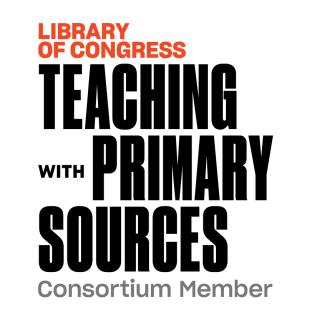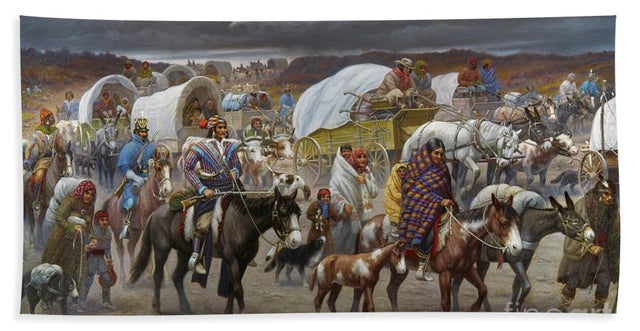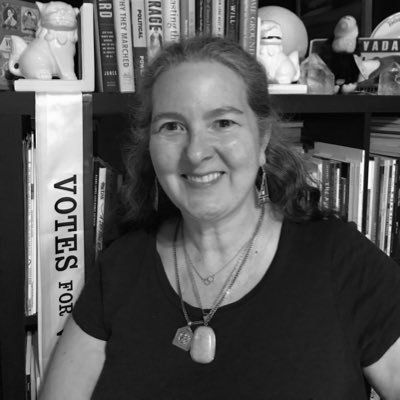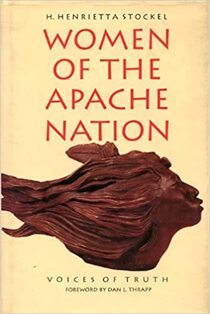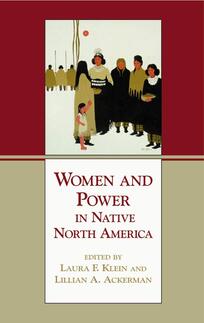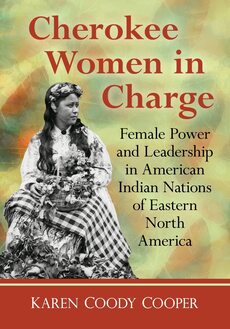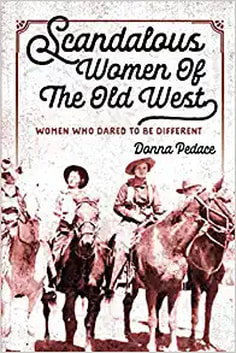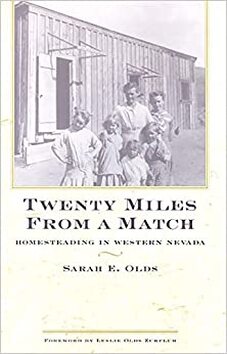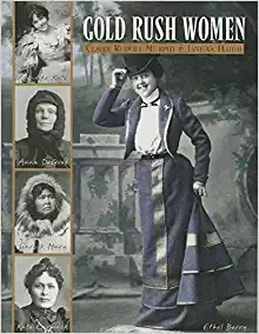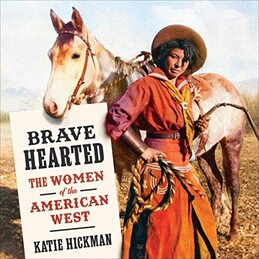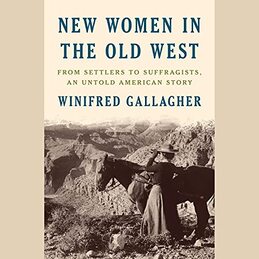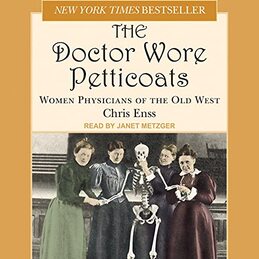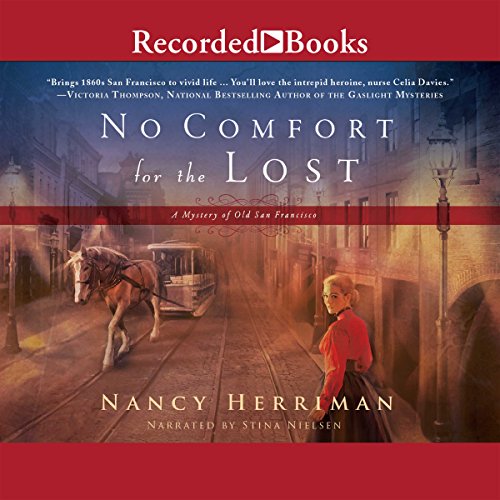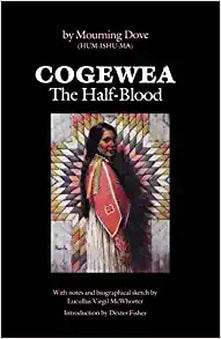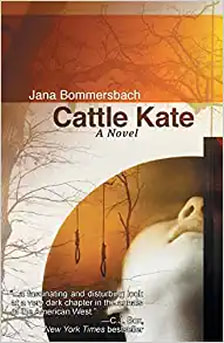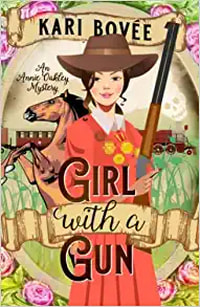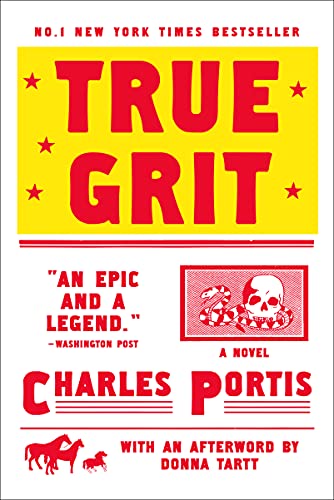8. Women and the west
|
The west was a crossroads, and a place where we can see the intersection of so many different women. Mexican women, gold rush women, Chinese immigrants, American homesteaders, cowgirls, and Native Americans all staked claim in these territories. Their interactions created a diverse, tense, and fascinating culture that led to freedoms and restrictions for women.
|
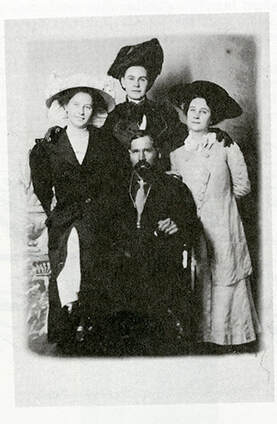 Women on the U.S Frontier, National Park Services
Women on the U.S Frontier, National Park Services
As debates over slavery raged throughout the country, life on the western frontier was a whole different experience. Unfettered by traditional gender norms, diverse in culture and people, and full of the challenge of frontier life, women seemingly had more opportunities in the west to be what they couldn’t in the east. While all women in the 1800s had their struggles, life in the west had some unique dimensions that varied distinctly by race and class.
At the time of westward expansion there were few opportunities for women in the east. Some women were bound by traditional gender ideology which limited their options to marriage and domestic life, while poor women were making inroads at some of the nation’s first factories. New western lands acquired in the Louisiana Purchase, and later through war with Mexico, created an opportunity for poor and adventurous Americans to pursue the American Dream. Men often went in advance of their wives and families to establish a property and income. Women are commonly portrayed as having been dragged along on these adventures– but this characterization isn’t entirely accurate.
In some respects, the west was an equalizer. The women who made the journey were not marginalized in their own time, but their stories have been obscured. To uncover this rich history, we have to reconsider the types of work that women did–they did everything that was necessary to grow crops, raise animals, and bear and raise children in the isolation of the plains and prairies. Life was hard, and women had to be tough.
At the time of westward expansion there were few opportunities for women in the east. Some women were bound by traditional gender ideology which limited their options to marriage and domestic life, while poor women were making inroads at some of the nation’s first factories. New western lands acquired in the Louisiana Purchase, and later through war with Mexico, created an opportunity for poor and adventurous Americans to pursue the American Dream. Men often went in advance of their wives and families to establish a property and income. Women are commonly portrayed as having been dragged along on these adventures– but this characterization isn’t entirely accurate.
In some respects, the west was an equalizer. The women who made the journey were not marginalized in their own time, but their stories have been obscured. To uncover this rich history, we have to reconsider the types of work that women did–they did everything that was necessary to grow crops, raise animals, and bear and raise children in the isolation of the plains and prairies. Life was hard, and women had to be tough.
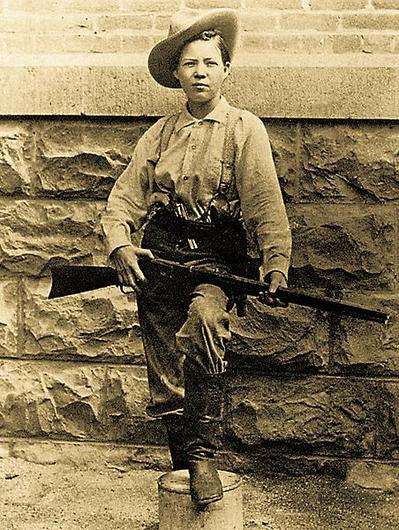 Wikimedia Commons
Wikimedia Commons
In the former Spanish colonies of newly independent Mexico, married women living in the American Southwest had certain legal advantages not afforded their European-American peers. Under English common law, women, when they married, became femmes covert (effectively dead in the eyes of the legal system) and thus unable to own property separately from their husbands. Spanish-Mexican women retained control of their land after marriage and held one-half interest in the community property they shared with their spouses. Historians have noted that intermarriage with Hispano women in the Mexican era provided foreigners with access to land and trade networks. While this made Spanish-Mexican women attractive marriage partners for white American men who moved into the region, the laws regarding land ownership that emerged in that context–and that remained after U.S. annexation–benefitted white women, too.
The West gave women special opportunities as authors and entertainers. Aspiring writers saw literary “material” in the stuff of their daily lives in frontier, rural,and urban western spaces. They shaped that material into letters, journals, sketches, essays, and stories for eastern magazines and presses—and received popular acclaim. Furthermore, women like Lola Montez were able to become fixtures of the western entertainment world–while earning a living for themselves.
The West gave women special opportunities as authors and entertainers. Aspiring writers saw literary “material” in the stuff of their daily lives in frontier, rural,and urban western spaces. They shaped that material into letters, journals, sketches, essays, and stories for eastern magazines and presses—and received popular acclaim. Furthermore, women like Lola Montez were able to become fixtures of the western entertainment world–while earning a living for themselves.
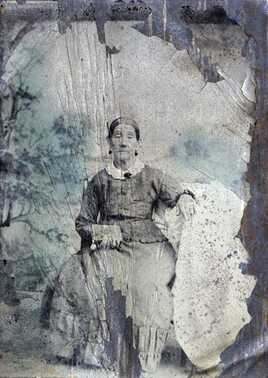 Juana Gertrudis Navarro Alsbury, The Alamo
Juana Gertrudis Navarro Alsbury, The Alamo
Texas Independence:
Many Americans settled in the region of Texas, a state within the Mexican nation. There they were subjected to Mexican laws which required their conversion to Catholicism and outlawed the institution of slavery. Many Americans came to the region despite those restrictions; but over time, the ratio of Americans to Mexicans became 10 to 1 in the sparsely populated region of Northern Mexico As Mexican leaders saw Texas slipping away from their grasp–particularly as many Americans in Texas were migrants from the American South who brought slaves with them and openly defied Mexican law ,revolution seemed inevitable.
In 1835, war began. As Mexico attempted to regain control over the region, Texans refused to submit to the Mexican military. After a small battle, the Texans took control of the Alamo where they settled in for the real fight. Women were among those inside the fort. Susanna Dickinson was one of them, along with her infant daughter. Her husband was a captain in charge of artillery at the Alamo. It was a decisive Mexican victory in which only about 14 Texans survived out of almost 200. Dickinson was one of the survivors. She hid in a dark room inside the mission during the assault, and later told her story, “A few days before the final assault three Texans entered the fort during the night and inspired us with sanguine hopes of speedy relief, and thus animated the men to contend to the last. A Mexican woman deserted us one night, and going over to the enemy informed them of our very inferior numbers, which Col. Travis said made them confident of success and emboldened them to make the final assault, which they did at early dawn on the morning.”
Two sisters, Juana Gertrudis Navarro Alsbury and Maria Gertrudis Navarro, were also at the Alamo and survived. They recalled the deaths of many people during the month-long assault and said that defenders were shot right in front of them in the final hours of the battle.
Many Americans settled in the region of Texas, a state within the Mexican nation. There they were subjected to Mexican laws which required their conversion to Catholicism and outlawed the institution of slavery. Many Americans came to the region despite those restrictions; but over time, the ratio of Americans to Mexicans became 10 to 1 in the sparsely populated region of Northern Mexico As Mexican leaders saw Texas slipping away from their grasp–particularly as many Americans in Texas were migrants from the American South who brought slaves with them and openly defied Mexican law ,revolution seemed inevitable.
In 1835, war began. As Mexico attempted to regain control over the region, Texans refused to submit to the Mexican military. After a small battle, the Texans took control of the Alamo where they settled in for the real fight. Women were among those inside the fort. Susanna Dickinson was one of them, along with her infant daughter. Her husband was a captain in charge of artillery at the Alamo. It was a decisive Mexican victory in which only about 14 Texans survived out of almost 200. Dickinson was one of the survivors. She hid in a dark room inside the mission during the assault, and later told her story, “A few days before the final assault three Texans entered the fort during the night and inspired us with sanguine hopes of speedy relief, and thus animated the men to contend to the last. A Mexican woman deserted us one night, and going over to the enemy informed them of our very inferior numbers, which Col. Travis said made them confident of success and emboldened them to make the final assault, which they did at early dawn on the morning.”
Two sisters, Juana Gertrudis Navarro Alsbury and Maria Gertrudis Navarro, were also at the Alamo and survived. They recalled the deaths of many people during the month-long assault and said that defenders were shot right in front of them in the final hours of the battle.
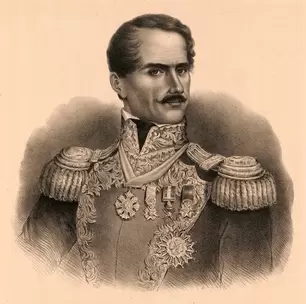 Santa Anna, Britannica
Santa Anna, Britannica
Following the Alamo battle, Dickinson and the other surviving women were brought before Mexican General Santa Anna. He allowed her to be released on the condition that she delivered a letter to Sam Houston, stating that the treatment given to the rebels at the Alamo would be extended to the rest of the country.
In return for her release, she was provided with a horse and two enslaved people. They were forced to travel to Gonzalez. She eventually joined the large-scale migration known as the Runaway Scrape. As a widow, Susanna had limited means to support herself and, as a result, remarried multiple times. Finally, in 1857, she settled in Austin with her fifth husband, Joseph William Hannig, where the family thrived.
The struggle for Texan independence ramped up after the Alamo, with soldiers joining the cause. Santa Anna began an inhumane policy of executing Texas prisoners and burning their bodies rather than burying them which was Christian custom. Peggy McCormick owned land on the San Jacinto river where the final battle of Texas Independence occurred. As the battle raged, Peggy and her sons fled their property and returned to find their corn crop and more than 230 livestock had been taken by both the Mexican and Texan armies. Moreover, the bodies of numerous Mexican soldiers were left to rot. Distraught by the state of her home, Peggy confronted Houston at his camp, urging him to remove the rotting corpses. He refused and encouraged her to appreciate the historic significance of her land. She was unimpressed and responded defiantly, “To the devil with your glorious history! Take off your stinking Mexicans."
In return for her release, she was provided with a horse and two enslaved people. They were forced to travel to Gonzalez. She eventually joined the large-scale migration known as the Runaway Scrape. As a widow, Susanna had limited means to support herself and, as a result, remarried multiple times. Finally, in 1857, she settled in Austin with her fifth husband, Joseph William Hannig, where the family thrived.
The struggle for Texan independence ramped up after the Alamo, with soldiers joining the cause. Santa Anna began an inhumane policy of executing Texas prisoners and burning their bodies rather than burying them which was Christian custom. Peggy McCormick owned land on the San Jacinto river where the final battle of Texas Independence occurred. As the battle raged, Peggy and her sons fled their property and returned to find their corn crop and more than 230 livestock had been taken by both the Mexican and Texan armies. Moreover, the bodies of numerous Mexican soldiers were left to rot. Distraught by the state of her home, Peggy confronted Houston at his camp, urging him to remove the rotting corpses. He refused and encouraged her to appreciate the historic significance of her land. She was unimpressed and responded defiantly, “To the devil with your glorious history! Take off your stinking Mexicans."
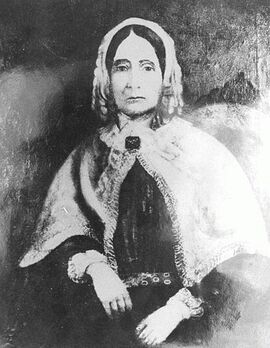 Peggy McCormick
Peggy McCormick
Left with no alternative, Peggy McCormick and her two sons took it upon themselves to bury the bodies–continuing a tradition of women being the primary caretakers for the dead after battle.
Despite the hardships she faced, Peggy persevered and transformed her property into one of the largest cattle operations in Harris County. Regrettably, a considerable portion of her land was stolen from her due to an unethical land resurvey, a discovery made only after Peggy's passing in 1854.
Though Texas offered itself up for US annexation immediately upon receiving its independence from Mexico in 1836, it would not be until 1845 that this officially took place. Several factors contributed to this delay. Though American expansionists were driven by Manifest Destiny and hoped to acquire not just Texas, but all the territory to the west, Mexico threatened war with the United States should they annex Texas immediately. Furthermore, concern over what the annexation of Texas would mean in the post-Missouri Compromise and pre-Civil War era was another factor. Though many expansionists believed in the strength of American values and institutions which justified moral claims of hemispheric leadership, the political reality was that few wanted to battle over the potential admission of another slave state. As a result, from 1836-1845, Texas existed as its own independent republic.
Once the US took over the government for the Republic of Texas, they changed the legal system to English common law instead of the Spanish and Mexican legal systems that had been in place for years. The legal systems that had been in place in Texas provided women with rights that were unheard of to their Eastern counterpart. According to English law, "a married woman could not make a contract, could not own property, could not write a will, could sue or be sued, could not even fight for the custody of her own children because she did not have a legal identity separate from that of her husband." In Texas, women had been able to do all of those things. Fortunately, some of the Spanish systems were brought back when the statehood constitution was written in 1845. Tejano women suffered the most from the change in the legal system. By the time some of the Spanish systems came back, most of the Tejano women had lost all of their land to violence or fraud.
Despite the hardships she faced, Peggy persevered and transformed her property into one of the largest cattle operations in Harris County. Regrettably, a considerable portion of her land was stolen from her due to an unethical land resurvey, a discovery made only after Peggy's passing in 1854.
Though Texas offered itself up for US annexation immediately upon receiving its independence from Mexico in 1836, it would not be until 1845 that this officially took place. Several factors contributed to this delay. Though American expansionists were driven by Manifest Destiny and hoped to acquire not just Texas, but all the territory to the west, Mexico threatened war with the United States should they annex Texas immediately. Furthermore, concern over what the annexation of Texas would mean in the post-Missouri Compromise and pre-Civil War era was another factor. Though many expansionists believed in the strength of American values and institutions which justified moral claims of hemispheric leadership, the political reality was that few wanted to battle over the potential admission of another slave state. As a result, from 1836-1845, Texas existed as its own independent republic.
Once the US took over the government for the Republic of Texas, they changed the legal system to English common law instead of the Spanish and Mexican legal systems that had been in place for years. The legal systems that had been in place in Texas provided women with rights that were unheard of to their Eastern counterpart. According to English law, "a married woman could not make a contract, could not own property, could not write a will, could sue or be sued, could not even fight for the custody of her own children because she did not have a legal identity separate from that of her husband." In Texas, women had been able to do all of those things. Fortunately, some of the Spanish systems were brought back when the statehood constitution was written in 1845. Tejano women suffered the most from the change in the legal system. By the time some of the Spanish systems came back, most of the Tejano women had lost all of their land to violence or fraud.
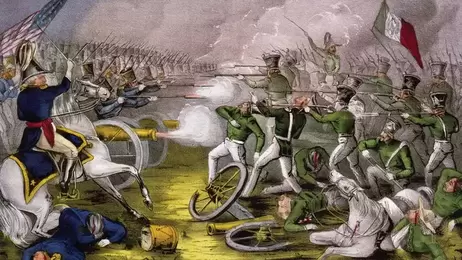 Mexican-American War, Britannica
Mexican-American War, Britannica
Mexican-American War:
The war in Texas for independence foreshadowed events that would take place in other parts of Northern Mexico. It’s difficult to generalize what happened since many of the Northern territories of Mexico had their own regional identities and power structures. However, for the most part, many citizens of the northern regions of Mexico either favored independence or American annexation. Few Nuevomexicanos or Californios saw a benefit in remaining part of the newly formed nation of Mexico–that had only barely acquired independence from Spain in 1821. Distant from the seat of Spanish-turned-Mexican power (in present-day Mexico City), elite families in these northern regions had essentially been isolated from the centralized government since the late 18th century. Thus, their allegiance to this new country of Mexico was perhaps as strong as their willingness to become part of the United States. They were more inclined to join whatever nation benefited their own economic interests.
In the 1840’s, just two decades after its Independence from Spain, Mexico was divided. The Mexican economy was dire and political upheavals were constant. As US soldiers marched through Mexico and established military bases, the Mexican president Santa Anna organized an army. However, given many of the growing pains associated with nation-building, this army was easily overcome by the US military. Some Mexicans supported the US invasion and others fought with all their means against the US.
Thousands of young men, some barely older than boys, took up arms and served on fields of battle. Women had very little say in the whole affair, but sewed regimental flags and sent their sons off to war. Sometimes enthusiastically. One self proclaimed “Spartan” mother wrote to her son that she would, “Sacrifice him at the cannon’s mouth, rather than find he had deserted… return with [your shield] or return upon it– with it or upon it.”
On the home front and on the battlefront, women from the US and Mexico had an impact on the war and its outcome. Women from both countries accompanied soldiers to war, sometimes in official capacity but often by their own choice. Whether serving as cooks, laundresses, nurses, or maids, these women were usually referred to simply as "camp followers.”
The war in Texas for independence foreshadowed events that would take place in other parts of Northern Mexico. It’s difficult to generalize what happened since many of the Northern territories of Mexico had their own regional identities and power structures. However, for the most part, many citizens of the northern regions of Mexico either favored independence or American annexation. Few Nuevomexicanos or Californios saw a benefit in remaining part of the newly formed nation of Mexico–that had only barely acquired independence from Spain in 1821. Distant from the seat of Spanish-turned-Mexican power (in present-day Mexico City), elite families in these northern regions had essentially been isolated from the centralized government since the late 18th century. Thus, their allegiance to this new country of Mexico was perhaps as strong as their willingness to become part of the United States. They were more inclined to join whatever nation benefited their own economic interests.
In the 1840’s, just two decades after its Independence from Spain, Mexico was divided. The Mexican economy was dire and political upheavals were constant. As US soldiers marched through Mexico and established military bases, the Mexican president Santa Anna organized an army. However, given many of the growing pains associated with nation-building, this army was easily overcome by the US military. Some Mexicans supported the US invasion and others fought with all their means against the US.
Thousands of young men, some barely older than boys, took up arms and served on fields of battle. Women had very little say in the whole affair, but sewed regimental flags and sent their sons off to war. Sometimes enthusiastically. One self proclaimed “Spartan” mother wrote to her son that she would, “Sacrifice him at the cannon’s mouth, rather than find he had deserted… return with [your shield] or return upon it– with it or upon it.”
On the home front and on the battlefront, women from the US and Mexico had an impact on the war and its outcome. Women from both countries accompanied soldiers to war, sometimes in official capacity but often by their own choice. Whether serving as cooks, laundresses, nurses, or maids, these women were usually referred to simply as "camp followers.”
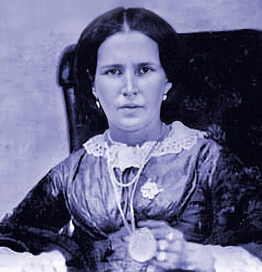 María Josefa Zozaya
María Josefa Zozaya
Laundresses received one food ration a day and were paid based on the amount of clothing they washed. These women kept the soldiers clean, fed, and healthy. More importantly, camp followers raised troop morale and brought a bit of home to the monotony of daily camp life.
Mexican women frequently accompanied loved ones serving in the Mexican Army. A U.S. soldier noted seeing "a woman of 60 or more, a mother with an infant wrapped in her rebozo (shawl), a youthful Señorita frisking along with her lover's sombrero on her head, and a prattling girl who had followed father and mother to the war.”
During the Battle of Monterrey, María Josefa Zozaya worked tirelessly to bring food and water to all, regardless of nationality. While gently lifting a soldier's head into her lap and binding his wounds with her own handkerchief, she was struck and killed by gunfire. US soldiers buried her body "amid showers of grape and round shot." Deeply moved, soldiers on both sides praised her humanity in the midst of war. Songs and poems were written to commemorate the compassion of the "Maid of Monterrey."
Mexican women frequently accompanied loved ones serving in the Mexican Army. A U.S. soldier noted seeing "a woman of 60 or more, a mother with an infant wrapped in her rebozo (shawl), a youthful Señorita frisking along with her lover's sombrero on her head, and a prattling girl who had followed father and mother to the war.”
During the Battle of Monterrey, María Josefa Zozaya worked tirelessly to bring food and water to all, regardless of nationality. While gently lifting a soldier's head into her lap and binding his wounds with her own handkerchief, she was struck and killed by gunfire. US soldiers buried her body "amid showers of grape and round shot." Deeply moved, soldiers on both sides praised her humanity in the midst of war. Songs and poems were written to commemorate the compassion of the "Maid of Monterrey."
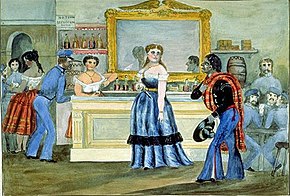 Sarah Bowman, Wikimedia Commons
Sarah Bowman, Wikimedia Commons
American women also were in harm's way. Sarah Bowman, was an entrepreneur and camp follower during the Mexican American War. She was nicknamed, “The Great Western.” She was a large woman, standing 6 feet tall, and was fluent in Spanish. She refused to take shelter and served food and water to the troops during a siege at Fort Texas. Even though a bullet went through her sunbonnet. Elizabeth Newcome, of Missouri, participated in the conquest of New Mexico by disguising herself as a man as countless women had done in every war before. Women fought for patriotism, a pension, and for adventure. Under the name "Bill" Newcome, she served as a Private for 10 months before her true identity was discovered by a doctor and she was forced to leave. She was discharged from duty, but still received a veteran's land bounty after the war.
Maria Gertrudis Barceló was a wealthy businesswoman operating in Santa Fe, New Mexico in the nineteenth century. She preferred to be called Madame La Tulas. She ran a saloon and gambling house. She also owned several rental properties. She used the money she earned to support her adopted children, as her two biological children had passed away as infants. She was a well known and respected woman in town.
Maria Gertrudis Barceló was a wealthy businesswoman operating in Santa Fe, New Mexico in the nineteenth century. She preferred to be called Madame La Tulas. She ran a saloon and gambling house. She also owned several rental properties. She used the money she earned to support her adopted children, as her two biological children had passed away as infants. She was a well known and respected woman in town.
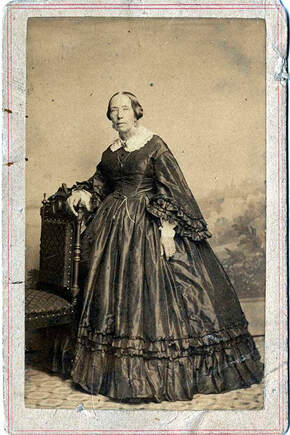 “The Heroine of Tampico.”
“The Heroine of Tampico.”
American women also served as spies in the war. Ann McClarmonda Chase was married to Franklin Chase, the US Consul in Mexico. The information that she gathered led to the bloodless capture of Tampico by the United States Navy. She was given the nickname, “The Heroine of Tampico.”
Women also protested this war–believing it to be an unjust war for imperial land acquisition and, arguably, the expansion of American slavery. Most of the opposition came from the staunchly anti-slavery New England. Caroline Healy Dall wrote for a women’s rights magazine Una. She wrote a blistering piece entitled “The War” claiming, “No man with the least spark of true patriotism in his soul can look at the present condition of this country without shame, fear and foreboding… this is a great national crime.” In another piece she wrote, “American Woman! What think you of the horrid crimes, inseparable from war, committed by husbands, brothers, whom you and I have loved in the Mexican campaign? Can you offer your flushed cheeks in affectionate welcome of brutes and ravishers from their abandoned life?”
She had a point. American soldiers, on several occasions raped and pillaged Mexican cities– and women. An infantry lieutenant wrote home to his parents, “General Lane… told us to avenge the death of the gallant Walker, to… take all we could lay hands on… Old women and girls were stripped of their clothing— and many suffered still greater outrages.”
Margarett Fuller, a prominent well connected journalist who was abroad in Europe during the war decried, “this horrible cancer of slavery, and the wicked war that has grown out of it.”
Women also protested this war–believing it to be an unjust war for imperial land acquisition and, arguably, the expansion of American slavery. Most of the opposition came from the staunchly anti-slavery New England. Caroline Healy Dall wrote for a women’s rights magazine Una. She wrote a blistering piece entitled “The War” claiming, “No man with the least spark of true patriotism in his soul can look at the present condition of this country without shame, fear and foreboding… this is a great national crime.” In another piece she wrote, “American Woman! What think you of the horrid crimes, inseparable from war, committed by husbands, brothers, whom you and I have loved in the Mexican campaign? Can you offer your flushed cheeks in affectionate welcome of brutes and ravishers from their abandoned life?”
She had a point. American soldiers, on several occasions raped and pillaged Mexican cities– and women. An infantry lieutenant wrote home to his parents, “General Lane… told us to avenge the death of the gallant Walker, to… take all we could lay hands on… Old women and girls were stripped of their clothing— and many suffered still greater outrages.”
Margarett Fuller, a prominent well connected journalist who was abroad in Europe during the war decried, “this horrible cancer of slavery, and the wicked war that has grown out of it.”
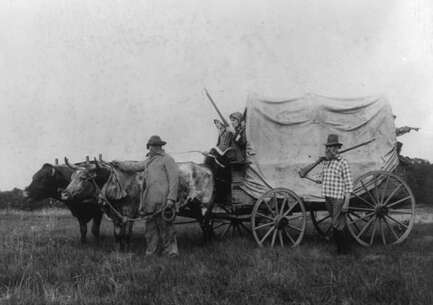 Women on the California Trail
Women on the California Trail
Gold Rush:
While the government seized land westward as part of America’s Manifest Destiny, it relied on individual Americans to move west and populate it. This process was initially slow, but then accelerated with the discovery of Gold in California. Starting in 1848, at Sutter’s Mill in the California territory, the Gold Rush attracted Americans and foreigners. Boom towns rose and fell as settlers moved west in search of quick riches. The Gold Rushes and the subsequent expansion westward led to significant gender imbalances in many frontier towns and mining camps. The influx of predominantly male prospectors and settlers disrupted the traditional balance of men and women in the population.
Families in the east began preparing to move west and seek their fortune. The journey took over six months and required them to hunt, defend themselves against scavengers, and indigenous people they encountered, who likely weren’t thrilled by the thousands of new settlers in their territory. Women served wagon trains as nurses, cooks, and by performing other domestic services. Women traveled with their children, an added anxiety. Women sometimes traveled pregnant, which left them more susceptible to disease and death along the journey. Catherine Haun recalled that the only death on her voyage west was a mother who gave birth and died on the trail.
While the government seized land westward as part of America’s Manifest Destiny, it relied on individual Americans to move west and populate it. This process was initially slow, but then accelerated with the discovery of Gold in California. Starting in 1848, at Sutter’s Mill in the California territory, the Gold Rush attracted Americans and foreigners. Boom towns rose and fell as settlers moved west in search of quick riches. The Gold Rushes and the subsequent expansion westward led to significant gender imbalances in many frontier towns and mining camps. The influx of predominantly male prospectors and settlers disrupted the traditional balance of men and women in the population.
Families in the east began preparing to move west and seek their fortune. The journey took over six months and required them to hunt, defend themselves against scavengers, and indigenous people they encountered, who likely weren’t thrilled by the thousands of new settlers in their territory. Women served wagon trains as nurses, cooks, and by performing other domestic services. Women traveled with their children, an added anxiety. Women sometimes traveled pregnant, which left them more susceptible to disease and death along the journey. Catherine Haun recalled that the only death on her voyage west was a mother who gave birth and died on the trail.
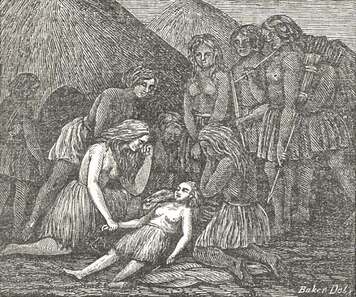 Olive Oatman
Olive Oatman
Olive Oatman was taken into captivity when her family was traveling to California. Their brother survived and spent the next several years trying to find his sisters. Eventually, the Yavapai sold the Oatman sisters to the Mohave. The girls appear to have liked living among the Mohave. Tragically, a drought struck and Mary Ann didn’t survive. A few years after her capture, word got back to her brother that she was alive. Oatman was allowed to return to her brother. She eventually recounted her story to Rev. Royal B. Stratton who wrote the book Being an Interesting Narrative of the Captivity of the Oatman Girls (1857). She lived the remainder of her life in Sherman, Texas.
Luzena Stanley Wilson, her husband, and two young sons also packed their wagon and moved west to California. The journey was long and difficult and many people didn’t make it. One day, a miner approached her and offered to pay her $10 for a biscuit that was cooked by a woman. There weren’t many women in California. She thought he was crazy but accepted his offer and gave him a biscuit. Once in Sacramento, she learned that her skills were worth gold. The Wilsons bought into a small hotel and Luzena began cooking. Due to the gender imbalances in the area, Luzena’s domestic skills were valuable and she was able to charge exorbitant rates. Luzena became the bread winner of her household. Luzena said that she was treated like a “queen” because she reminded so many of the miners of their families back home.
Luzena Stanley Wilson, her husband, and two young sons also packed their wagon and moved west to California. The journey was long and difficult and many people didn’t make it. One day, a miner approached her and offered to pay her $10 for a biscuit that was cooked by a woman. There weren’t many women in California. She thought he was crazy but accepted his offer and gave him a biscuit. Once in Sacramento, she learned that her skills were worth gold. The Wilsons bought into a small hotel and Luzena began cooking. Due to the gender imbalances in the area, Luzena’s domestic skills were valuable and she was able to charge exorbitant rates. Luzena became the bread winner of her household. Luzena said that she was treated like a “queen” because she reminded so many of the miners of their families back home.
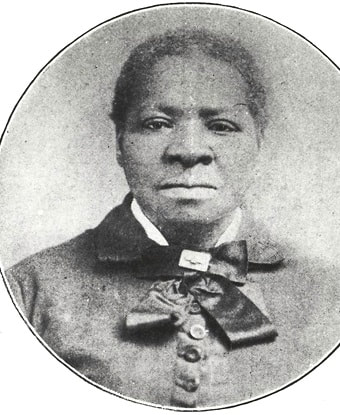 Bridget Biddy Mason
Bridget Biddy Mason
The scarcity of women gave those who migrated greater social and economic opportunities. Divorce laws were relaxed in many instances and became more socially acceptable. Women found themselves in high demand as domestic partners and workers in establishments like saloons, hotels, and restaurants. Some women used their relative scarcity to negotiate for higher wages or greater independence. Augusta Tabor gained wealth by investing in real estate in both Colorado and New Mexico, money she then funneled into her philanthropic pursuits such as the charitable Pioneer Ladies’ Aid Society that she co-founded in 1860. A more “respectable” profession for women was teaching. In a one room schoolhouse, the frontier town teacher instructed all the grades at once. Attendance at school was spotty at best, as children were needed to work on the farm or in the mines.
Black women also migrated west during the Gold Rush seeking better economic opportunities and a chance for social mobility. For enslaved Black women, the opportunity to escape the oppressive system of slavery was a significant motivation for migrating west. The western states, particularly California, had more favorable laws regarding the status of enslaved individuals, or were able to negotiate more leniency and flexibility within their enslaved condition because of the new locale. Either way, some saw the Gold Rush as an opportunity to gain freedom and independence. This became known as the “Great Exodus.” They experienced greater freedoms in the west than in the South, but life was still difficult.
Bridget Biddy Mason was an entrepreneur in California who was brought to the state as an enslaved woman and who ended up becoming a wealthy land-owning philanthropist in Los Angeles. Her 1856 court case challenging her enslavement won both her own freedom and that of thirteen of her family members. She saved the money she earned as a midwife and nurse to support her family. Eventually she purchased land in downtown Los Angeles–becoming one of the first Black women to do so. Biddy founded the First AME Church in 1872, which is the oldest African American church in the city. She was a well-known philanthropist and donated millions of dollars to different causes in LA, such as helping the poor and founding an elementary school for Black children. When she died in 1891, her estate was valued at more than $300,000–millions of dollars today.
Black women also migrated west during the Gold Rush seeking better economic opportunities and a chance for social mobility. For enslaved Black women, the opportunity to escape the oppressive system of slavery was a significant motivation for migrating west. The western states, particularly California, had more favorable laws regarding the status of enslaved individuals, or were able to negotiate more leniency and flexibility within their enslaved condition because of the new locale. Either way, some saw the Gold Rush as an opportunity to gain freedom and independence. This became known as the “Great Exodus.” They experienced greater freedoms in the west than in the South, but life was still difficult.
Bridget Biddy Mason was an entrepreneur in California who was brought to the state as an enslaved woman and who ended up becoming a wealthy land-owning philanthropist in Los Angeles. Her 1856 court case challenging her enslavement won both her own freedom and that of thirteen of her family members. She saved the money she earned as a midwife and nurse to support her family. Eventually she purchased land in downtown Los Angeles–becoming one of the first Black women to do so. Biddy founded the First AME Church in 1872, which is the oldest African American church in the city. She was a well-known philanthropist and donated millions of dollars to different causes in LA, such as helping the poor and founding an elementary school for Black children. When she died in 1891, her estate was valued at more than $300,000–millions of dollars today.
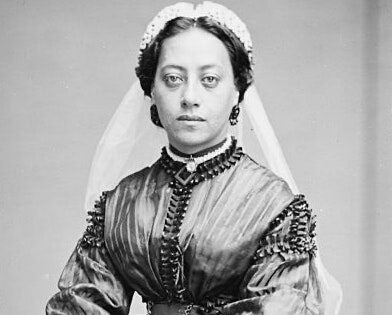 Mary Ellen Pleasant
Mary Ellen Pleasant
Black women recognized that the booming Gold Rush towns presented various business prospects. They engaged in entrepreneurial activities such as opening boarding houses, restaurants, laundries, and other services that catered to the needs of the growing population.
Mary Ellen Pleasant was a Black woman involved in abolitionist work who moved to San Francisco in 1852. She obtained shrewd financial advice from her male business customers as she was working as a housekeeper. Her investments in real estate and mining paid richly and she was a generous philanthropist to the local Black community, such as financing the early library in San Francisco.
Free-born, Mary Ellen Pleasant operated boarding houses in San Francisco for elite white men. She used her amassed wealth to invest in the homes and became a self-made millionaire. She used her wealth to further support the abolitionist movement in California.
Mary Ellen Pleasant was a Black woman involved in abolitionist work who moved to San Francisco in 1852. She obtained shrewd financial advice from her male business customers as she was working as a housekeeper. Her investments in real estate and mining paid richly and she was a generous philanthropist to the local Black community, such as financing the early library in San Francisco.
Free-born, Mary Ellen Pleasant operated boarding houses in San Francisco for elite white men. She used her amassed wealth to invest in the homes and became a self-made millionaire. She used her wealth to further support the abolitionist movement in California.
Chinese immigrants also came in the thousands to seek their fortunes. Chinese women, though few in number in the middle of the 19th century, were often subjected to discrimination and disapproval from Anglo Americans but were tolerated, as they provided a very much needed working force. Lai Wah Howe in Sacramento and Yee Shee Tsoong in Nevada City ran successful businesses.
Mormons:
Many early migrants were Mormon pilgrims driven from their homes in Missouri and Illinois. Latter-day Saints saw migrating westward as the start to new lives where they could freely practice their religion. They were pioneers, but also refugees.
Mormons:
Many early migrants were Mormon pilgrims driven from their homes in Missouri and Illinois. Latter-day Saints saw migrating westward as the start to new lives where they could freely practice their religion. They were pioneers, but also refugees.
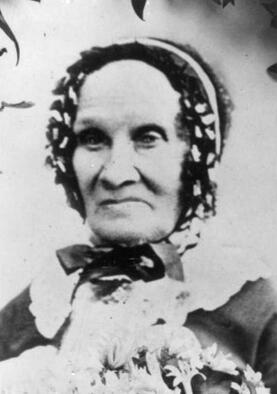 Patty Bartlett Sessions
Patty Bartlett Sessions
Like many Mormon women, Patty Bartlett Sessions gained her place in history by practicing midwifery. She participated in the westward movement of eastern Americans, ending her life in the Rocky Mountains valleys, two thousand miles from Maine, her native town. Her diary gives us an account of Mormon women who dedicated their lives to their communities, particularly to the formation of western Zion. Thanks to her letters we can get a glimpse of the lives of the women and their involvement in commerce, education, government, and the court system. We also see how Mormon women grappled with religious and domestic affairs, such as dealing with other wives.
As a midwife, Patty Bartlett Sessions was a central figure in the community and she delivered nearly 4,000 babies–one of the highest documented case loads among pioneering women.
She was an active member of her community presiding the Relief Society, a philanthropic and educational women’s organization founded in 1842 to address the physical and spiritual needs of the LDS community. Female benevolent societies became clearinghouses for employment, safe housing, informal economies, and socially-acceptable political action for women.
As a midwife, Patty Bartlett Sessions was a central figure in the community and she delivered nearly 4,000 babies–one of the highest documented case loads among pioneering women.
She was an active member of her community presiding the Relief Society, a philanthropic and educational women’s organization founded in 1842 to address the physical and spiritual needs of the LDS community. Female benevolent societies became clearinghouses for employment, safe housing, informal economies, and socially-acceptable political action for women.
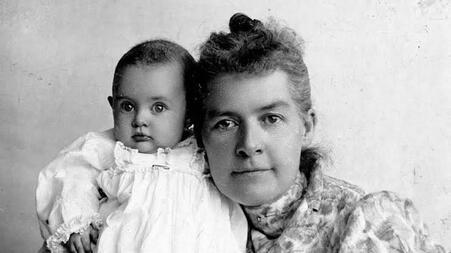 Martha Hughes Cannon
Martha Hughes Cannon
However despite moving west to Utah, Mormonism remained controversial especially due to its tolerance of polygamous marriages, where one man has multiple wives. According to historian Laurel Thatcher Ulrich, plural marriage was a complicated lot for women. She said, “Plural marriage empowered women in very complicated ways, and to put it most simply, it added to the complexity and the adversity they experienced… It also reinforced an already well developed community of women to share work, to share childcare, to share religious faith, to share care in childbirth and in illness, in some sense strengthened bonds that were already very much present in their lives.”
This complicated nature is illustrated in the life of Martha Hughes Cannon, a doctor who became the fourth of eventually six wives in a polygamous marriage. After giving birth to her first child, proof that her relationship was sexual, she had to flee to England using the 'Mormon Underground' network to avoid testifying against her husband in court during a period of government crackdowns on polygamy.
Utah was the first to grant women the right to vote on an equal footing with men in 1869. Many Mormons supported women’s suffrage, and primary sources from the women’s meetings show that it was Mormon women who asked for the vote. While other suffragists were advocating for voting rights for other reasons, many Mormon women in polygamous marriages wanted political power and voting rights to protect the institution of polygamy–the “right to choose my own husband” as historian Laurel Thatcher Ulrich describes it. As a prominent figure in Utah's women's suffrage movement, Cannon played a crucial role in enshrining women's suffrage in the state's constitution.
This complicated nature is illustrated in the life of Martha Hughes Cannon, a doctor who became the fourth of eventually six wives in a polygamous marriage. After giving birth to her first child, proof that her relationship was sexual, she had to flee to England using the 'Mormon Underground' network to avoid testifying against her husband in court during a period of government crackdowns on polygamy.
Utah was the first to grant women the right to vote on an equal footing with men in 1869. Many Mormons supported women’s suffrage, and primary sources from the women’s meetings show that it was Mormon women who asked for the vote. While other suffragists were advocating for voting rights for other reasons, many Mormon women in polygamous marriages wanted political power and voting rights to protect the institution of polygamy–the “right to choose my own husband” as historian Laurel Thatcher Ulrich describes it. As a prominent figure in Utah's women's suffrage movement, Cannon played a crucial role in enshrining women's suffrage in the state's constitution.
Early in life, as the LDS Church was encouraging women into medicine, Cannon decided to train as a doctor. In 1878, she graduated from University of Deseret with a degree in Chemistry, before being selected by the Church to study at the University of Michigan and become a doctor. Upon her return to Utah, she worked at Deseret Hospital, where she met her future husband, Angus Munn Cannon. She was his fourth wife.
After getting married in 1884, suspicions of polygamy brought federal officers, who sought Martha Hughes Cannon in order that she testify in court. In 1890, the US Supreme Court had ruled that laws prohibiting polygamy were legal. Mormons officially practiced polygamy until September 1890 when religious leaders reluctantly issued the “Mormon Manifesto” stating that the LDS Church would abide by the anti-polygamy laws of the US. Cannon was forced to flee, eventually returning to the U.S. and establishing Utah's inaugural nurse's training school in 1888. Additionally, Cannon was instrumental in setting up Utah's first board of health and establishing a school for the deaf and blind.
Then in 1896, Cannon became the first female state senator in the country after defeating her own husband. She said, “Women will purify politics. Women are better than men and will do the world of politics good.”
Then, in her first term, she became pregnant with her third child, again evidence of a sexual marriage. Her husband was arrested. Her career in politics was over. She said, “Life is made up of profit and loss, and loss seems to be the prevailing element in my career at present.” Hughes relocated to California with her children and continued her career as a physician.
After getting married in 1884, suspicions of polygamy brought federal officers, who sought Martha Hughes Cannon in order that she testify in court. In 1890, the US Supreme Court had ruled that laws prohibiting polygamy were legal. Mormons officially practiced polygamy until September 1890 when religious leaders reluctantly issued the “Mormon Manifesto” stating that the LDS Church would abide by the anti-polygamy laws of the US. Cannon was forced to flee, eventually returning to the U.S. and establishing Utah's inaugural nurse's training school in 1888. Additionally, Cannon was instrumental in setting up Utah's first board of health and establishing a school for the deaf and blind.
Then in 1896, Cannon became the first female state senator in the country after defeating her own husband. She said, “Women will purify politics. Women are better than men and will do the world of politics good.”
Then, in her first term, she became pregnant with her third child, again evidence of a sexual marriage. Her husband was arrested. Her career in politics was over. She said, “Life is made up of profit and loss, and loss seems to be the prevailing element in my career at present.” Hughes relocated to California with her children and continued her career as a physician.
Gender Fluidity:
The Western Frontier during the early 19th century provided an emerging unique and fairly lawless environment, offering a blank canvas for individuals seeking a fresh start on the fringes of society. In the absence of stringent laws and federal enforcement, the West became a haven where one could redefine not only their life but also their notions of gender and sexuality. As historian Peter Boag observed, this vast frontier was more than just uncharted territory; it was a space where individuals could freely express themselves and find a measure of private safety. While societal acceptance may not have been universal, the West provided a pioneering backdrop for the exploration and redefinition of identity, including the nuanced history of cross-dressing and the expression of diverse gender identities.
The reasons for crossing-dressing and many probable transgender identities in the West are numerous. Some adopted cross-dressing to evade the law, less as an expression of gender, but as a tool to ensure freedom and evasion from authorities. As the West was fairly lawless, danger was prevalent in the travel across the new frontier. Women obviously faced danger, not only because of the nature of the emerging West but also the everyday dangers women all over the U.S. and the world faced. To combat these threats and unpredictable dangers, cross-dressing provided a practical strategy for safe travel through hazardous areas, offering a layer of anonymity and protection. Moreover, seeking employment in a region marked by opportunities but also by limited resources and unconventional occupations, individuals found that cross-dressing could be a pragmatic choice. Importantly, for many, this expression of gender identity did not function as only a temporary disguise but a fundamental aspect of who they were. The motivations behind cross-dressing in the Western Frontier are uncovered through various historical sources, including public records, newspapers documenting the peculiarities of frontier life, and oral traditions passed down through word of mouth. However, it's crucial to acknowledge that many of these individuals remain elusive to historical documentation, leaving gaps in our understanding of their experiences and identities.
Understanding cases of transwomen in the West is complex, nuanced, and information can be scarce. Importantly, the concept of transgender identity as we understand it today did not exist during the 1800s. Consequently, it becomes challenging to definitively label individuals as transgender. However, exploration by queer historians often reveals instances of men or women living for extended periods within the gender opposite to that assigned at birth, only to be discovered as trans or cross-dressing after death or by accident. In the vast expanses of the American West, the lived experiences of trans women remain notably absent from historical records, primarily attributed to the lack of safety and comfort for individuals choosing to live openly as women. Historian Peter Boag, in his extensive research, encountered far fewer stories of trans women in comparison to other narratives from the era. The scarcity of such accounts is not indicative of the absence of transgender individuals but rather underscores the challenging circumstances that discouraged the open expression of gender identity.
One example of the few likely trans women found in the West is the case of Mrs. Nash. Born in Mexico and initially assigned male at birth, Mrs. Nash had a significant role as a laundress for the Seventh Cavalry in Montana for over a decade during the 1800s. During this period, she not only fulfilled her professional duties but also forged personal connections by marrying three different enlisted men. After her death in 1878 due to appendicitis, Mrs. Nash’s male appendage was discovered when her body was being prepared for burial. Subsequent coverage in national papers portrayed Nash as an outsider with a suspect gender, contrary to the firsthand accounts documented in the Bismarck Tribune. According to eyewitnesses, Nash was a respected woman known for her skills as an interior decorator, midwife, and particularly as a celebrated tamale cook. However, racialized descriptions that, were common during the era, were employed to cast doubt open her character, underscoring the intersectionality of gender and race in shaping perceptions of individuals like Mrs. Nash within society. Mrs. Nash’s experience was indicative of a larger trend that faced queer people within the West. Despite the freedom the Western frontier provided, it still held deeply repressive views of queer individuals.
The Western Frontier of the 19th century served as a dynamic and lawless backdrop that allowed individuals to redefine their lives and identities. The exploration of cross-dressing and diverse gender expressions in this environment unveils a complex tapestry of motivations, from evading the law to ensuring safety in hazardous travels and seeking pragmatic employment opportunities. The West, while pioneering in its acceptance of diverse identities, still grappled with societal challenges and repressive views toward queer individuals. The nuanced history of trans women in the West remains elusive, given the lack of safety and comfort for those openly embracing their gender identities. Despite the challenges, the Western Frontier stands as a pivotal space where individuals could explore and redefine their identities, leaving a legacy that is both intricate and, at times, shrouded in historical obscurity.
The Western Frontier during the early 19th century provided an emerging unique and fairly lawless environment, offering a blank canvas for individuals seeking a fresh start on the fringes of society. In the absence of stringent laws and federal enforcement, the West became a haven where one could redefine not only their life but also their notions of gender and sexuality. As historian Peter Boag observed, this vast frontier was more than just uncharted territory; it was a space where individuals could freely express themselves and find a measure of private safety. While societal acceptance may not have been universal, the West provided a pioneering backdrop for the exploration and redefinition of identity, including the nuanced history of cross-dressing and the expression of diverse gender identities.
The reasons for crossing-dressing and many probable transgender identities in the West are numerous. Some adopted cross-dressing to evade the law, less as an expression of gender, but as a tool to ensure freedom and evasion from authorities. As the West was fairly lawless, danger was prevalent in the travel across the new frontier. Women obviously faced danger, not only because of the nature of the emerging West but also the everyday dangers women all over the U.S. and the world faced. To combat these threats and unpredictable dangers, cross-dressing provided a practical strategy for safe travel through hazardous areas, offering a layer of anonymity and protection. Moreover, seeking employment in a region marked by opportunities but also by limited resources and unconventional occupations, individuals found that cross-dressing could be a pragmatic choice. Importantly, for many, this expression of gender identity did not function as only a temporary disguise but a fundamental aspect of who they were. The motivations behind cross-dressing in the Western Frontier are uncovered through various historical sources, including public records, newspapers documenting the peculiarities of frontier life, and oral traditions passed down through word of mouth. However, it's crucial to acknowledge that many of these individuals remain elusive to historical documentation, leaving gaps in our understanding of their experiences and identities.
Understanding cases of transwomen in the West is complex, nuanced, and information can be scarce. Importantly, the concept of transgender identity as we understand it today did not exist during the 1800s. Consequently, it becomes challenging to definitively label individuals as transgender. However, exploration by queer historians often reveals instances of men or women living for extended periods within the gender opposite to that assigned at birth, only to be discovered as trans or cross-dressing after death or by accident. In the vast expanses of the American West, the lived experiences of trans women remain notably absent from historical records, primarily attributed to the lack of safety and comfort for individuals choosing to live openly as women. Historian Peter Boag, in his extensive research, encountered far fewer stories of trans women in comparison to other narratives from the era. The scarcity of such accounts is not indicative of the absence of transgender individuals but rather underscores the challenging circumstances that discouraged the open expression of gender identity.
One example of the few likely trans women found in the West is the case of Mrs. Nash. Born in Mexico and initially assigned male at birth, Mrs. Nash had a significant role as a laundress for the Seventh Cavalry in Montana for over a decade during the 1800s. During this period, she not only fulfilled her professional duties but also forged personal connections by marrying three different enlisted men. After her death in 1878 due to appendicitis, Mrs. Nash’s male appendage was discovered when her body was being prepared for burial. Subsequent coverage in national papers portrayed Nash as an outsider with a suspect gender, contrary to the firsthand accounts documented in the Bismarck Tribune. According to eyewitnesses, Nash was a respected woman known for her skills as an interior decorator, midwife, and particularly as a celebrated tamale cook. However, racialized descriptions that, were common during the era, were employed to cast doubt open her character, underscoring the intersectionality of gender and race in shaping perceptions of individuals like Mrs. Nash within society. Mrs. Nash’s experience was indicative of a larger trend that faced queer people within the West. Despite the freedom the Western frontier provided, it still held deeply repressive views of queer individuals.
The Western Frontier of the 19th century served as a dynamic and lawless backdrop that allowed individuals to redefine their lives and identities. The exploration of cross-dressing and diverse gender expressions in this environment unveils a complex tapestry of motivations, from evading the law to ensuring safety in hazardous travels and seeking pragmatic employment opportunities. The West, while pioneering in its acceptance of diverse identities, still grappled with societal challenges and repressive views toward queer individuals. The nuanced history of trans women in the West remains elusive, given the lack of safety and comfort for those openly embracing their gender identities. Despite the challenges, the Western Frontier stands as a pivotal space where individuals could explore and redefine their identities, leaving a legacy that is both intricate and, at times, shrouded in historical obscurity.
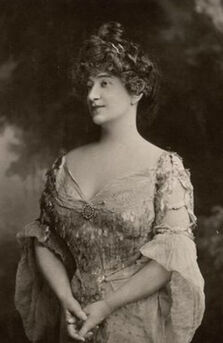
Prostitution:
In areas heavily impacted by the Gold Rushes, such as California, Nevada, Colorado, and later the Klondike region of the Yukon in northwestern Canada, the sex ratios were often highly skewed, with a significantly higher number of men compared to women. The ratio could be as extreme as 9 or 10 men for every woman in some mining communities. This created a scarcity of women and a competitive environment among men for their attention and companionship.
The gender imbalance led to the development of unique social practices such as dance halls, matchmaking events, and mail-order bride systems, which facilitated the formation of relationships between men and women. With fewer women available, the competition among men for marriage and relationships increased. Interestingly, in history where there are fewer women, there are also higher rates of violent crime– the west was no exception.
The imbalanced sex ratio and the high concentration of men in frontier towns created a demand for commercial sex. Prostitution became prevalent, with brothels and red-light districts emerging as part of the social fabric of many Wild West communities. While sex work comes with notable risks, for some women, it provided a means of economic independence–not unlike other gendered, domestic labor like cooking and laundry.
Pearl DeVere, also known as Pearl Dabney, was a famous madam and businesswoman in Cripple Creek, Colorado. She established and operated a high-class brothel in the booming mining town. Her establishment, known as "The Old Homestead," was reputed for its opulence and luxury, catering to wealthy and influential clients, including prominent politicians and businessmen. She was refined, stylish, and became a notable and respected figure who participated in charity work. DeVere was, however, the exception, not the rule for the profession of prostitution which often was exploitative and dangerous for women, especially women of color.
In areas heavily impacted by the Gold Rushes, such as California, Nevada, Colorado, and later the Klondike region of the Yukon in northwestern Canada, the sex ratios were often highly skewed, with a significantly higher number of men compared to women. The ratio could be as extreme as 9 or 10 men for every woman in some mining communities. This created a scarcity of women and a competitive environment among men for their attention and companionship.
The gender imbalance led to the development of unique social practices such as dance halls, matchmaking events, and mail-order bride systems, which facilitated the formation of relationships between men and women. With fewer women available, the competition among men for marriage and relationships increased. Interestingly, in history where there are fewer women, there are also higher rates of violent crime– the west was no exception.
The imbalanced sex ratio and the high concentration of men in frontier towns created a demand for commercial sex. Prostitution became prevalent, with brothels and red-light districts emerging as part of the social fabric of many Wild West communities. While sex work comes with notable risks, for some women, it provided a means of economic independence–not unlike other gendered, domestic labor like cooking and laundry.
Pearl DeVere, also known as Pearl Dabney, was a famous madam and businesswoman in Cripple Creek, Colorado. She established and operated a high-class brothel in the booming mining town. Her establishment, known as "The Old Homestead," was reputed for its opulence and luxury, catering to wealthy and influential clients, including prominent politicians and businessmen. She was refined, stylish, and became a notable and respected figure who participated in charity work. DeVere was, however, the exception, not the rule for the profession of prostitution which often was exploitative and dangerous for women, especially women of color.
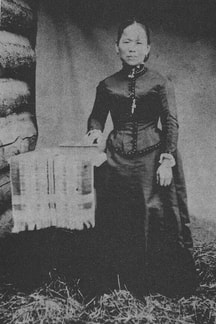 Polly Bemis
Polly Bemis
Ah Tou, also known as Polly Bemis, is considered the first Chinese woman immigrant who became famous for her story of resilience and survival. She was sold into slavery in China and brought to the United States, where she worked as a domestic servant and later married a Chinese miner in Idaho. Despite her somewhat happy ending, prostitution was horrible for Chinese women. At the time, Chinese women were a rarity in the west, as most Chinese men had come to seek their fortunes during the California Gold Rush and left their families behind in China. Cultural norms in China also prevented many women from emmigrating. When coupled with laws like the Page Act of 1875 that would limit the immigration of Chinese women to the United states, this gender imbalance created a demand for female companionship–thus making sex work lucrative.
Prostitution in San Francisco's Chinatown was orchestrated by secretive Chinese societies known as "tongs." These tongs, while providing protection and opportunities for new immigrants, were also notorious criminal enterprises. They kidnapped and purchased Chinese women and girls to meet the growing demand for the sex trade. The lucrative profits from this business allowed the tongs to expand their influence, dominate immigrant neighborhoods, and engage in other criminal activities.
While some girls were kidnapped during political upheavals in China, such as the Opium Wars and the Taiping Rebellion, others were sold into bondage by their own families. Daughters were deemed inferior to sons in Chinese society, as they were unable to provide physical labor or carry on the ancestral name. Their inferior status made them expendable, and it was considered acceptable to dispose of them when circumstances dictated.
When coupled with laws like the Page Act of 1875 that would limit the immigration of Chinese women to the United states, this gender imbalance created a demand for female companionship–thus making sex work lucrative.
Prostitution in San Francisco's Chinatown was orchestrated by secretive Chinese societies known as "tongs." These tongs, while providing protection and opportunities for new immigrants, were also notorious criminal enterprises. They kidnapped and purchased Chinese women and girls to meet the growing demand for the sex trade. The lucrative profits from this business allowed the tongs to expand their influence, dominate immigrant neighborhoods, and engage in other criminal activities.
While some girls were kidnapped during political upheavals in China, such as the Opium Wars and the Taiping Rebellion, others were sold into bondage by their own families. Daughters were deemed inferior to sons in Chinese society, as they were unable to provide physical labor or carry on the ancestral name. Their inferior status made them expendable, and it was considered acceptable to dispose of them when circumstances dictated.
Prostitution in San Francisco's Chinatown was orchestrated by secretive Chinese societies known as "tongs." These tongs, while providing protection and opportunities for new immigrants, were also notorious criminal enterprises. They kidnapped and purchased Chinese women and girls to meet the growing demand for the sex trade. The lucrative profits from this business allowed the tongs to expand their influence, dominate immigrant neighborhoods, and engage in other criminal activities.
While some girls were kidnapped during political upheavals in China, such as the Opium Wars and the Taiping Rebellion, others were sold into bondage by their own families. Daughters were deemed inferior to sons in Chinese society, as they were unable to provide physical labor or carry on the ancestral name. Their inferior status made them expendable, and it was considered acceptable to dispose of them when circumstances dictated.
When coupled with laws like the Page Act of 1875 that would limit the immigration of Chinese women to the United states, this gender imbalance created a demand for female companionship–thus making sex work lucrative.
Prostitution in San Francisco's Chinatown was orchestrated by secretive Chinese societies known as "tongs." These tongs, while providing protection and opportunities for new immigrants, were also notorious criminal enterprises. They kidnapped and purchased Chinese women and girls to meet the growing demand for the sex trade. The lucrative profits from this business allowed the tongs to expand their influence, dominate immigrant neighborhoods, and engage in other criminal activities.
While some girls were kidnapped during political upheavals in China, such as the Opium Wars and the Taiping Rebellion, others were sold into bondage by their own families. Daughters were deemed inferior to sons in Chinese society, as they were unable to provide physical labor or carry on the ancestral name. Their inferior status made them expendable, and it was considered acceptable to dispose of them when circumstances dictated.
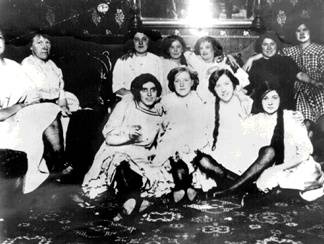 Group of Prostitutes
Group of Prostitutes
The value of a girl sold into prostitution overseas far exceeded that of one sold within China. Families facing economic hardship often made the heartbreaking decision to sell their daughters abroad in the hopes of giving them a better life. Most girls, out of filial loyalty, accepted their family's decision and allowed themselves to be sold to "labor contractors" in China. Sing Kum, sold into slavery as a child, recalled, “My father came to see me once… He seemed very sad, and when he went away he gave me some cash and wished me prosperity. That was the last time I saw him. I was sold four times. I came to California about five years ago. My last mistress was very cruel to me. She used to whip me, pull my hair, and pinch the inside of my cheeks. A friend of mine told me about this place and that night I ran away… I was afraid my mistress was coming after me. I rang the bell twice, and when the door was opened I ran in quickly. I thank God that he led me to this place….”
Upon arrival in San Francisco, these young women were confined in barracoons, reminiscent of the African slave trade. Those purchased for tong brothels were handed over to their owners, while those still unsold were put up for auction.
Upon meeting their owners, the Chinese women, despite their often illiteracy, were coerced into signing contracts binding them as prostitutes for several years. Some of the more attractive girls became concubines of wealthy owners, who might treat them relatively decently. However, if they failed to please their masters, they could be returned to the auction block. Most of the girls ended up in "cribs," shacks frequented by sailors, laborers, and drunkards, both Chinese and white, who paid meager fees for their services.
Upon arrival in San Francisco, these young women were confined in barracoons, reminiscent of the African slave trade. Those purchased for tong brothels were handed over to their owners, while those still unsold were put up for auction.
Upon meeting their owners, the Chinese women, despite their often illiteracy, were coerced into signing contracts binding them as prostitutes for several years. Some of the more attractive girls became concubines of wealthy owners, who might treat them relatively decently. However, if they failed to please their masters, they could be returned to the auction block. Most of the girls ended up in "cribs," shacks frequented by sailors, laborers, and drunkards, both Chinese and white, who paid meager fees for their services.
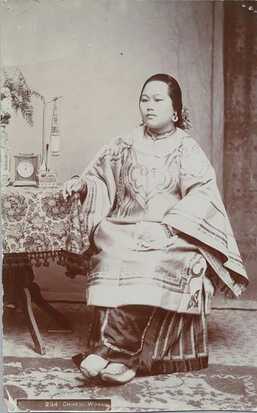 Ah Toy
Ah Toy
Ah Toy was one of the most famous Chinese women in San Francisco during the Gold Rush. She arrived in California in the 1850s and became a successful businesswoman, running a brothel and becoming a prominent figure in the city's Chinese community. Chinese brothel owners fared better than other Chinese businessmen, making substantial profits and exerting control over prostitution, gambling, and the opium trade, this also made them a target.
In 1855, Ah Toy sued a man named Charles P. Duane for assault and battery. Duane had attacked her in her own residence, causing her physical harm. Ah Toy pursued legal action against him, seeking compensation for the damages inflicted upon her.
The court case was significant because it highlighted the challenges faced by Chinese immigrants in the legal system, as well as the resilience and determination of Ah Toy to protect her rights. Ultimately, Ah Toy was successful in her lawsuit, with the court ruling in her favor and awarding her damages. This case showcased Ah Toy's courage and contributed to her reputation as a strong and independent woman in the Chinese community during that time.
The conditions in California brothels, primarily concentrated in San Francisco and Los Angeles, were deplorable. The indentured girls were mistreated by customers, received minimal care, and were denied medical attention. Homesick and untreated for venereal diseases or other illnesses, most women endured physical and emotional breakdowns, rarely surviving more than five or six years in bondage. Some girls, who entered the trade at the tender age of 14, died before reaching the age of 20.
In 1855, Ah Toy sued a man named Charles P. Duane for assault and battery. Duane had attacked her in her own residence, causing her physical harm. Ah Toy pursued legal action against him, seeking compensation for the damages inflicted upon her.
The court case was significant because it highlighted the challenges faced by Chinese immigrants in the legal system, as well as the resilience and determination of Ah Toy to protect her rights. Ultimately, Ah Toy was successful in her lawsuit, with the court ruling in her favor and awarding her damages. This case showcased Ah Toy's courage and contributed to her reputation as a strong and independent woman in the Chinese community during that time.
The conditions in California brothels, primarily concentrated in San Francisco and Los Angeles, were deplorable. The indentured girls were mistreated by customers, received minimal care, and were denied medical attention. Homesick and untreated for venereal diseases or other illnesses, most women endured physical and emotional breakdowns, rarely surviving more than five or six years in bondage. Some girls, who entered the trade at the tender age of 14, died before reaching the age of 20.
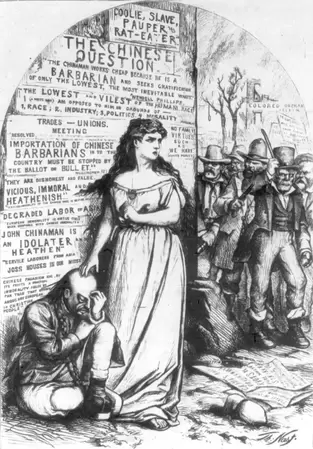 The Chinese Exclusion Act of 1882
The Chinese Exclusion Act of 1882
When a Chinese prostitute could no longer earn her keep, a harrowing ritual ensued (. The prostitute would be informed that she must die and locked in a dingy, windowless room with meager provisions. Days later, when the lamp had burned out, her executioners would enter to remove the woman, who was usually dead from starvation or suicide. In other cases, the ailing prostitute would be simply cast out onto the street to die. The streets of Chinatown in 1870 were strewn with the bodies of deceased prostitutes. Some chose to end their lives by consuming raw opium or jumping into the bay.
Despite the abhorrent and inhumane nature of the situation, local officials took no action to address the issue. Chinese immigrants were treated as inferior by other settlers, so their mistreatment was seemingly not a concern. The girls from China kept coming. In 1869, a significant number of 369 contracted Chinese slave girls arrived in San Francisco on a Pacific Mail steamer. Captain William Douglas of the San Francisco Police, accompanied by 18 officers, created a spectacle of apprehending them at the Brannan Street docks and promptly delivered them to the Chinatown brothels. Eight months later, Douglas and his men repeated this process with another group of 246 girls who had landed in San Francisco. As Chinese immigration increased, the proportion of prostitutes among Chinese women decreased to 71 percent by 1870 and further dropped to 21 percent by 1880. Despite the federal Page Act of 1875 aiming to prevent the immigration of women suspected of prostitution from "China, Japan, or any East Asian country," the tongs and their accomplices largely disregarded its provisions. The Chinese Exclusion Act of 1882 went even further by banning the immigration of all Chinese laborers. Nevertheless, Chinese women continued to enter the country illegally, aided by corrupt politicians and police officers, resulting in a subsequent surge of prostitution across the state.
Despite the abhorrent and inhumane nature of the situation, local officials took no action to address the issue. Chinese immigrants were treated as inferior by other settlers, so their mistreatment was seemingly not a concern. The girls from China kept coming. In 1869, a significant number of 369 contracted Chinese slave girls arrived in San Francisco on a Pacific Mail steamer. Captain William Douglas of the San Francisco Police, accompanied by 18 officers, created a spectacle of apprehending them at the Brannan Street docks and promptly delivered them to the Chinatown brothels. Eight months later, Douglas and his men repeated this process with another group of 246 girls who had landed in San Francisco. As Chinese immigration increased, the proportion of prostitutes among Chinese women decreased to 71 percent by 1870 and further dropped to 21 percent by 1880. Despite the federal Page Act of 1875 aiming to prevent the immigration of women suspected of prostitution from "China, Japan, or any East Asian country," the tongs and their accomplices largely disregarded its provisions. The Chinese Exclusion Act of 1882 went even further by banning the immigration of all Chinese laborers. Nevertheless, Chinese women continued to enter the country illegally, aided by corrupt politicians and police officers, resulting in a subsequent surge of prostitution across the state.
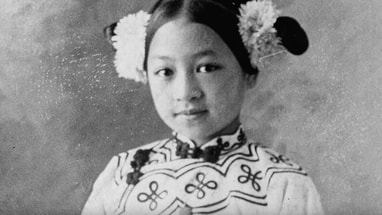 Tye Leung
Tye Leung
These laws were not inspired by a desire to help Chinese women, but were fueled by growing anti-Chinese sentiment in the United States, by economic competition, racial prejudices, and fears of cultural differences. Some Americans believed that Chinese immigrants were taking jobs away from native-born workers and undermining wages. There was a prevailing perception among certain segments of American society that Chinese immigrants were morally inferior and posed a threat to American society. This sentiment was particularly focused on Chinese women, who were often stereotyped as prostitutes or potential carriers of disease. Policymakers and lawmakers feared that the Chinese population in the United States would rapidly grow if not regulated.
Over time, the circumstances for some Chinese women in San Francisco began to improve. Tye Leung, for example, was born in San Francisco in 1887 to working-class Chinese parents. She volunteered at a shelter for rescued Chinese prostitutes and later became the first Chinese American to pass civil service exams. She worked as an assistant at Angel Island Immigration Station and made history by casting her ballot in the 1912 presidential election, becoming the first Chinese woman worldwide to exercise the electoral franchise.
Despite the dire situation in San Francisco, the experiences of Chinese women varied in other Western locations. In Oregon, few Chinese women were owned by tongs and engaged in prostitution. In Nevada, many Chinese women worked as prostitutes in opium dens, some voluntarily and others under coercion. Chinese prostitutes in Idaho Territory attempted to escape, often with the help of lovers, but were typically arrested and released once their owners posted bail.
Over time, the circumstances for some Chinese women in San Francisco began to improve. Tye Leung, for example, was born in San Francisco in 1887 to working-class Chinese parents. She volunteered at a shelter for rescued Chinese prostitutes and later became the first Chinese American to pass civil service exams. She worked as an assistant at Angel Island Immigration Station and made history by casting her ballot in the 1912 presidential election, becoming the first Chinese woman worldwide to exercise the electoral franchise.
Despite the dire situation in San Francisco, the experiences of Chinese women varied in other Western locations. In Oregon, few Chinese women were owned by tongs and engaged in prostitution. In Nevada, many Chinese women worked as prostitutes in opium dens, some voluntarily and others under coercion. Chinese prostitutes in Idaho Territory attempted to escape, often with the help of lovers, but were typically arrested and released once their owners posted bail.
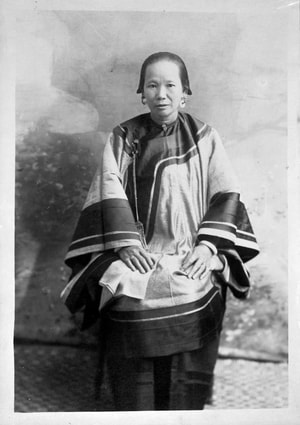 "China Annie"
"China Annie"
In Deadwood, Dakota Territory, Chinese women enjoyed relatively better conditions. The community embraced them, and respected figures, such as a German doctor and a German Jewish mayor, provided medical and legal protection to the Chinese, regardless of their gender. While some Chinese-operated brothels existed, many Chinese men established legitimate businesses, such as laundries and restaurants. The Chinese community even had its own fire company, showcasing their integration into the town.
In the Idaho Territory, women were occasionally motivated to escape, sometimes with the assistance of their lovers. Given the high value placed on these women, owners spared no expense in reclaiming their "property," often seeking the help of tongs to track down the escapees. Although the women were typically arrested, authorities would drop the charges and release them once their owners had posted bail. "China Annie" was an exceptional case in Idaho City, she managed to escape to Boise in the 1870s to marry her Chinese lover, Ah Guan. Astoundingly, her owner accused the enamored fiancé of kidnapping the captive Chinese girl, leading to her apprehension and a subsequent court appearance. The judge, sympathetic to the couple's situation, dismissed the case and even arranged for them to be immediately married in the courthouse. Similarly to other regions, in the Idaho Territory, many Chinese women, considered prostitutes by white society, were closer in status to concubines.
Chinese women and their families persisted, immigrated, built businesses, and sought their fortunes. While not representative of all Chinese women in this later period, Ah Toy’s initial wealth declined and she experienced financial difficulties because the Chinese population decreased as a result of these acts. The changing social and legal landscape, and growing number of white migrants likely affected her business prospects, although what exactly happened to her is not known.
In the Idaho Territory, women were occasionally motivated to escape, sometimes with the assistance of their lovers. Given the high value placed on these women, owners spared no expense in reclaiming their "property," often seeking the help of tongs to track down the escapees. Although the women were typically arrested, authorities would drop the charges and release them once their owners had posted bail. "China Annie" was an exceptional case in Idaho City, she managed to escape to Boise in the 1870s to marry her Chinese lover, Ah Guan. Astoundingly, her owner accused the enamored fiancé of kidnapping the captive Chinese girl, leading to her apprehension and a subsequent court appearance. The judge, sympathetic to the couple's situation, dismissed the case and even arranged for them to be immediately married in the courthouse. Similarly to other regions, in the Idaho Territory, many Chinese women, considered prostitutes by white society, were closer in status to concubines.
Chinese women and their families persisted, immigrated, built businesses, and sought their fortunes. While not representative of all Chinese women in this later period, Ah Toy’s initial wealth declined and she experienced financial difficulties because the Chinese population decreased as a result of these acts. The changing social and legal landscape, and growing number of white migrants likely affected her business prospects, although what exactly happened to her is not known.
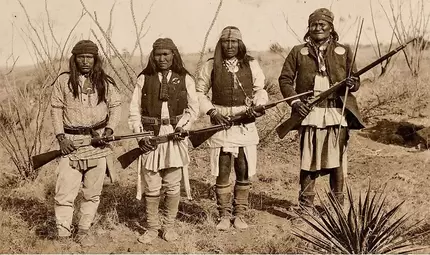 Apache Women Warriors
Apache Women Warriors
Indigenous Survival:
For indigenous women, life in the west was not an adventure… but about survival and sustaining cultural traditions. For these women the idea of an American “West” was meaningless. It represented a battleground of culture, conquest, and hunger. Non-Indian settlement destroyed the food sources and lifeways for the tribes and government policy forced them onto federally managed reservations. With their peoples ravaged by disease and forced assimilation, many tribal women faced crippling poverty and cultural genocide as the 1800s ended. The survival and success of tribes today is due to the ability of these native women to hold their families together during the era of the “American West.”
In the late 1800s as women recognized as citizens gained the vote in western territories, Chinese women fought to enter the US or escape prostitution in it, indigenous women continued to be eradicated by the US Army. After the Mexican-American War the US Army forced Apache communities in the Southwest onto reservations. The Mexicans had also been awful to the Apache people. Lozen, an Apache warrior, witnessed a massacre of her people in which the Mexicans lured them with gifts and then opened fire. But the conditions established by the US Army were terrible. In 1877, hundreds of Apache tried to escape. Lozen stayed with her brother, Victorio, while another leader Geronimo led some into the mountains. The US Army pursued them. Lozen courageously guided a group of women and children to safety in Mexico, crossing the treacherous Rio Grande river then returning to rejoin the battle. She again left to assist a young pregnant woman in crossing the harsh Chihuahuan Desert of Mexico back to her family on the Mescalero Apache Reservation. Equipped with only a rifle, a cartridge belt, a knife, and a three-day supply of food, she helped the woman deliver her child, killed game for food, and captured two horses for their travel.
For indigenous women, life in the west was not an adventure… but about survival and sustaining cultural traditions. For these women the idea of an American “West” was meaningless. It represented a battleground of culture, conquest, and hunger. Non-Indian settlement destroyed the food sources and lifeways for the tribes and government policy forced them onto federally managed reservations. With their peoples ravaged by disease and forced assimilation, many tribal women faced crippling poverty and cultural genocide as the 1800s ended. The survival and success of tribes today is due to the ability of these native women to hold their families together during the era of the “American West.”
In the late 1800s as women recognized as citizens gained the vote in western territories, Chinese women fought to enter the US or escape prostitution in it, indigenous women continued to be eradicated by the US Army. After the Mexican-American War the US Army forced Apache communities in the Southwest onto reservations. The Mexicans had also been awful to the Apache people. Lozen, an Apache warrior, witnessed a massacre of her people in which the Mexicans lured them with gifts and then opened fire. But the conditions established by the US Army were terrible. In 1877, hundreds of Apache tried to escape. Lozen stayed with her brother, Victorio, while another leader Geronimo led some into the mountains. The US Army pursued them. Lozen courageously guided a group of women and children to safety in Mexico, crossing the treacherous Rio Grande river then returning to rejoin the battle. She again left to assist a young pregnant woman in crossing the harsh Chihuahuan Desert of Mexico back to her family on the Mescalero Apache Reservation. Equipped with only a rifle, a cartridge belt, a knife, and a three-day supply of food, she helped the woman deliver her child, killed game for food, and captured two horses for their travel.
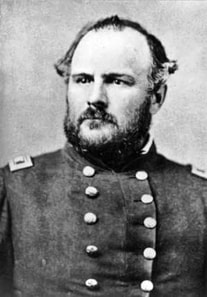 General Chivington
General Chivington
While away, her brother was killed in a raid by the US, so Lozen joined Geronimo in his fight against the US Army. Geronmio evaded capture for almost a decade, leading many Apache off the reservation. His band created a media sensation with their humiliation of the US Army over and over again. Then in 1885, he and Lozen led over one hundred natives to Canada, chased by the US Army the entire time. The families that followed him had to travel nearly seventy miles a day! Lozens stealth and skill at stealing horses proved invaluable. A quarter of the standing US Army pursued them until they were finally forced to surrender in 1886. Lozen and Dahteste, another female warrior, tried to negotiate with the US, but they were eventually sent to a prison camp in Florida. Lozen died of tuberculosis.
Constantly under threat of losing lands promised to Native communities in treaties, Natives took to defending themselves from encroachers and committing violence against frontier families. These acts of violence fueled growing “anti-Indian” sentiments in the US. Creating a fervor around destroying them.
In 1864, General Chivington marched the US Army on a settlement of about 800-900 Cheyenne and Arapaho who flew white flags of peace and even an American flag for good measure. Chivington, in a surprise attack, purportedly in retaliation for a few murders, massacred the community, raping women, murdering children, and cutting out their genitalia to mutilate their bodies. In court testimony, officers testified that women and children were killed “indiscriminately.” Chivington was rewarded with a speaking tour around the country.
Constantly under threat of losing lands promised to Native communities in treaties, Natives took to defending themselves from encroachers and committing violence against frontier families. These acts of violence fueled growing “anti-Indian” sentiments in the US. Creating a fervor around destroying them.
In 1864, General Chivington marched the US Army on a settlement of about 800-900 Cheyenne and Arapaho who flew white flags of peace and even an American flag for good measure. Chivington, in a surprise attack, purportedly in retaliation for a few murders, massacred the community, raping women, murdering children, and cutting out their genitalia to mutilate their bodies. In court testimony, officers testified that women and children were killed “indiscriminately.” Chivington was rewarded with a speaking tour around the country.
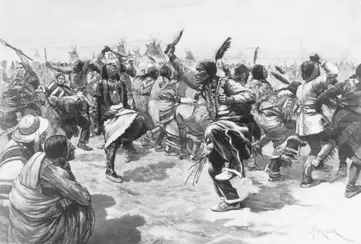 Ghost Dance
Ghost Dance
Gold drew settlers into the Dakota regions, encroaching further on Native lands. The Lakota Sioux, Cheyenne, and Arapaho engaged in a Buffalo dance, a form of worship, to preserve their lands, customs, and people. It scared the settlers. Skirmishes and violence erupted. Eventually, the US Army marched on a village of indigenous people in the Black Hills. Known as General Custer’s last stand, the army was quickly overwhelmed by native warriors and defeated. Custer himself was unhorsed by a native woman, Buffalo Calf Road Woman.
The US Army destroyed them in return. One of the last military actions in the northern Plains took place on December 29, 1890. In a crackdown against the Ghost Dance, General Miles attempted to arrest Lakota leaders, Chief Sitting Bull among them as punishment for allowing the Ghost Dance to continue. He dispatched 43 officers, Sitting Bull complied with the arrest, but his followers would not. Nine people were killed in the ensuing struggle. Thousands of Natives gathered to prepare for a US attack. Then, near Wounded Creek, Colonel Forsyth commanded a group to disarm a camp of Natives. They complied, but the search became increasingly tense and hostile. A gun went off and the now weaponless Natives were defenseless against an indiscriminately shooting army. Between 250-300 Lakota people were killed, compared to only 25 US soldiers.
This dark history was erased in popular memory through Wild West shows featuring sharp shooters like Annie Oakley. Opposition to the Indian Wars gained traction in the US, with help from white women like Helen Hunt Jackson who penned A Century of Dishonor about the US treatment of Native people. There was a desire to “kill the Indian, save the man” as the saying went. Instead of conflicts with adults, indigenous children were taken from their parents to boarding schools where they were forced to adopt US dress, gender norms, and convert to Christianity. There Native students endured “rampant physical, sexual, and emotional abuse,” and at least 500 children died in the “care” of these white teachers.
The US Army destroyed them in return. One of the last military actions in the northern Plains took place on December 29, 1890. In a crackdown against the Ghost Dance, General Miles attempted to arrest Lakota leaders, Chief Sitting Bull among them as punishment for allowing the Ghost Dance to continue. He dispatched 43 officers, Sitting Bull complied with the arrest, but his followers would not. Nine people were killed in the ensuing struggle. Thousands of Natives gathered to prepare for a US attack. Then, near Wounded Creek, Colonel Forsyth commanded a group to disarm a camp of Natives. They complied, but the search became increasingly tense and hostile. A gun went off and the now weaponless Natives were defenseless against an indiscriminately shooting army. Between 250-300 Lakota people were killed, compared to only 25 US soldiers.
This dark history was erased in popular memory through Wild West shows featuring sharp shooters like Annie Oakley. Opposition to the Indian Wars gained traction in the US, with help from white women like Helen Hunt Jackson who penned A Century of Dishonor about the US treatment of Native people. There was a desire to “kill the Indian, save the man” as the saying went. Instead of conflicts with adults, indigenous children were taken from their parents to boarding schools where they were forced to adopt US dress, gender norms, and convert to Christianity. There Native students endured “rampant physical, sexual, and emotional abuse,” and at least 500 children died in the “care” of these white teachers.
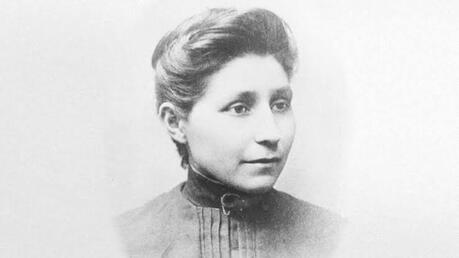 Susan La Flesche Picotte
Susan La Flesche Picotte
Conclusion:
Still some women endured. Susan La Flesche Picotte was a Native woman born on the Omaha Reservation in Nebraska in 1865. She was the second in her class at the Hampton Normal and Agricultural Institute in Virginia. She was well-versed in multiple languages including: English, French, Otoe, and her Native tongue. She continued her education by attending the Women’s Medical College of Philadelphia. This was the first medical school established in the United States for women. Three years later she graduated with her medical degree and was the Valedictorian of her class. She returned home to the Omaha Agency and began practicing there. She made many improvements and helped establish new hospitals in the region.
Summary: The west drew women from the eastern US as well as China. It disrupted the lives of Native and Mexican women. Women found opportunity, became wealthy, and some lost everything. The west was a place where gender norms were disrupted and also the worst of human nature was on display.
By the end of this era, so much remained in question. How would the women of the west influence the politics of the east? How can the violent acquisition of this land be reconciled? And how would gender, race, and ethnicity play a role in shaping western communities?
Still some women endured. Susan La Flesche Picotte was a Native woman born on the Omaha Reservation in Nebraska in 1865. She was the second in her class at the Hampton Normal and Agricultural Institute in Virginia. She was well-versed in multiple languages including: English, French, Otoe, and her Native tongue. She continued her education by attending the Women’s Medical College of Philadelphia. This was the first medical school established in the United States for women. Three years later she graduated with her medical degree and was the Valedictorian of her class. She returned home to the Omaha Agency and began practicing there. She made many improvements and helped establish new hospitals in the region.
Summary: The west drew women from the eastern US as well as China. It disrupted the lives of Native and Mexican women. Women found opportunity, became wealthy, and some lost everything. The west was a place where gender norms were disrupted and also the worst of human nature was on display.
By the end of this era, so much remained in question. How would the women of the west influence the politics of the east? How can the violent acquisition of this land be reconciled? And how would gender, race, and ethnicity play a role in shaping western communities?
Draw your own conclusions
|
Learn how to teach with inquiry.
Many of these lesson plans were sponsored in part by the Library of Congress Teaching with Primary Sources Eastern Region Program, coordinated by Waynesburg University, the History and Social Studies Education Faculty at Plymouth State University, and the Patrons of the Remedial Herstory Project. |
Lesson Plans from Other Organizations
- The National Women's History Museum has lesson plans on women's history.
- The Gilder Lehrman Institute for American History has lesson plans on women's history.
- The NY Historical Society has articles and classroom activities for teaching women's history.
- Unladylike 2020, in partnership with PBS, has primary sources to explore with students and outstanding videos on women from the Progressive era.
- The Roy Rosenzweig Center for History and New Media has produced recommendations for teaching women's history with primary sources and provided a collection of sources for world history. Check them out!
- The Stanford History Education Group has a number of lesson plans about women in World History.
Catherine Haun: Account Of Her Life
Catherine Haun was young and newly married when she and a group of goldseekers headed west. She wrote this abbreviated account of her journey.
Early in January of 1849 we first thought of emigrating to California... At that time the "gold fever" was contagious and few, old or young, escaped the malady. On the streets, in the fields, in the workshops and by the fireside, golden California was the chief topic of conversation. Who were going? How was best to "fix up" the "outfit"? What to take as food and clothing? Who would stay at home to care for the farm and womenfolks? Who would take wives and children along? Advice was handed out quite free of charge and often quite free of common sense. However, as two heads are better than one, all proffered ideas helped as a means to the end. The intended adventurers dilligently collected their belongings and after exchanging such articles as were not needed for others more suitable for the trip, begging, buying or borrowing what they could, with buoyant spirits started off.
Some half dozen families of our neighborhood joined us and probably about twenty-five persons constituted our little band... Our caravan had a good many women and children and although we were probably longer on the journey owing to their presence—they exerted a good influence, as the men did not take such risks with Indians and thereby avoided conflict; were more alert about the care of the teams and seldom had accidents; more attention was paid to cleanliness and sanitation and, lastly but not of less importance, the meals were more regular and better cooked thus preventing much sickness and there was less waste of food...
During the entire trip Indians were a source of anxiety, we being never sure of their friendship. Secret dread and alert watchfulness seemed always necessary... One night after we had retired, some sleeping in blankets upon the ground, some in tents, a few under the wagons and others in the wagons, Colonel Brophy gave the men a practice drill. It was impromptu and a surprise. He called: "Indians, Indians!" We were thrown into great confusion and excitement but he was gratified at the promptness and courage with which the men responded. Each immediately seized his gun and made ready for the attack. The women had been instructed to seek shelter in the wagons at such times of danger, but some screamed, others fainted, a few crawled under the wagons and those sleeping in wagons generally followed their husbands out and all of us were nearly paralized with fear. Fortunately, we never had occasion to put into actual use this maneuver, but the drill was quite reassuring and certainly we womenfolk would have acted braver had the alarm ever again been sounded...
[O]ne day found a post with a cross board pointing to a branch road which seemed better than the one we were on. . . . We decided to take it but before many miles suddenly found ourselves in a desolate, rough country that proved to be the edge of the "Bad Lands" I shudder yet at the thought of the ugliness and danger of the territory...
To add to the horrors of the surroundings one man was bitten on the ankle by a venemous snake. Although every available remidy was tried upon the wound, his limb had to be amputated with the aid of a common handsaw. Fortunately, for him, he had a good, brave wife along who helped and cheered him into health and usefulness; for it was not long before he found much that he could do and was not considered a burden, although the woman had to do a man's work as they were alone. He was of a mechanical turn, and later on helped mend wagons, yokes and harness; and when the train was "on the move" sat in the wagon, gun by his side, and repaired boots and shoes. He was one of the most cheery members of the company and told good stories and sang at the campfire, putting to shame some of the able bodied who were given to complaining or selfishness...
During the day we womenfolk visited from wagon to wagon or congenial friends spent an hour walking, ever westward, and talking over our home life back in "the states" telling of the loved ones left behind; voicing our hopes for the future in the far west and even whispering a little friendly gossip of emigrant life.
High teas were not popular but tatting [intricate knotwork], knitting, crocheting, exchanging recipes for cooking beans or dried apples or swapping food for the sake of variety kept us in practice of feminine occupations and diversions.
We did not keep late hours but when not too engrossed with fear of the red enemy [a racist phrase used by white people to describe Native peoples] or dread of impending danger we enjoyed the hour around the campfire. The menfolk lolling and smoking their pipes and guessing or maybe betting how many miles we had covered the day. We listened to readings, story telling, music and songs and the day often ended in laughter and merrymaking...
Across this drear country I used to ride horseback several hours of the day which was a great relief from the continual jolting of even our spring wagon. I also walked a great deal and this lightened the wagon. One day I walked fourteen miles and was not very fatigued...
The men seemed more tired and hungry than were the women. Our only death on the journey occurred in this desert. The Canadian woman, Mrs. Lamore, suddenly sickened [after childbirth] and died, leaving her two little girls and grief stricken husband. We halted a day to bury her and the infant that had lived but an hour, in this weird, lonely spot on God's footstool away apparently from everywhere and everybody...
[W}e reached Sacramento on November 4, 1849, just six months and ten days after leaving Clinton, Iowa, we were all in pretty good condition...
Haun, Catherine. "A Woman's Trip Across the Plains in 1849." From Lillian Schlissel, Women's Diaries of the Westward Journey. New York: Schocken Books, 1992. 166–85.
Questions:
Early in January of 1849 we first thought of emigrating to California... At that time the "gold fever" was contagious and few, old or young, escaped the malady. On the streets, in the fields, in the workshops and by the fireside, golden California was the chief topic of conversation. Who were going? How was best to "fix up" the "outfit"? What to take as food and clothing? Who would stay at home to care for the farm and womenfolks? Who would take wives and children along? Advice was handed out quite free of charge and often quite free of common sense. However, as two heads are better than one, all proffered ideas helped as a means to the end. The intended adventurers dilligently collected their belongings and after exchanging such articles as were not needed for others more suitable for the trip, begging, buying or borrowing what they could, with buoyant spirits started off.
Some half dozen families of our neighborhood joined us and probably about twenty-five persons constituted our little band... Our caravan had a good many women and children and although we were probably longer on the journey owing to their presence—they exerted a good influence, as the men did not take such risks with Indians and thereby avoided conflict; were more alert about the care of the teams and seldom had accidents; more attention was paid to cleanliness and sanitation and, lastly but not of less importance, the meals were more regular and better cooked thus preventing much sickness and there was less waste of food...
During the entire trip Indians were a source of anxiety, we being never sure of their friendship. Secret dread and alert watchfulness seemed always necessary... One night after we had retired, some sleeping in blankets upon the ground, some in tents, a few under the wagons and others in the wagons, Colonel Brophy gave the men a practice drill. It was impromptu and a surprise. He called: "Indians, Indians!" We were thrown into great confusion and excitement but he was gratified at the promptness and courage with which the men responded. Each immediately seized his gun and made ready for the attack. The women had been instructed to seek shelter in the wagons at such times of danger, but some screamed, others fainted, a few crawled under the wagons and those sleeping in wagons generally followed their husbands out and all of us were nearly paralized with fear. Fortunately, we never had occasion to put into actual use this maneuver, but the drill was quite reassuring and certainly we womenfolk would have acted braver had the alarm ever again been sounded...
[O]ne day found a post with a cross board pointing to a branch road which seemed better than the one we were on. . . . We decided to take it but before many miles suddenly found ourselves in a desolate, rough country that proved to be the edge of the "Bad Lands" I shudder yet at the thought of the ugliness and danger of the territory...
To add to the horrors of the surroundings one man was bitten on the ankle by a venemous snake. Although every available remidy was tried upon the wound, his limb had to be amputated with the aid of a common handsaw. Fortunately, for him, he had a good, brave wife along who helped and cheered him into health and usefulness; for it was not long before he found much that he could do and was not considered a burden, although the woman had to do a man's work as they were alone. He was of a mechanical turn, and later on helped mend wagons, yokes and harness; and when the train was "on the move" sat in the wagon, gun by his side, and repaired boots and shoes. He was one of the most cheery members of the company and told good stories and sang at the campfire, putting to shame some of the able bodied who were given to complaining or selfishness...
During the day we womenfolk visited from wagon to wagon or congenial friends spent an hour walking, ever westward, and talking over our home life back in "the states" telling of the loved ones left behind; voicing our hopes for the future in the far west and even whispering a little friendly gossip of emigrant life.
High teas were not popular but tatting [intricate knotwork], knitting, crocheting, exchanging recipes for cooking beans or dried apples or swapping food for the sake of variety kept us in practice of feminine occupations and diversions.
We did not keep late hours but when not too engrossed with fear of the red enemy [a racist phrase used by white people to describe Native peoples] or dread of impending danger we enjoyed the hour around the campfire. The menfolk lolling and smoking their pipes and guessing or maybe betting how many miles we had covered the day. We listened to readings, story telling, music and songs and the day often ended in laughter and merrymaking...
Across this drear country I used to ride horseback several hours of the day which was a great relief from the continual jolting of even our spring wagon. I also walked a great deal and this lightened the wagon. One day I walked fourteen miles and was not very fatigued...
The men seemed more tired and hungry than were the women. Our only death on the journey occurred in this desert. The Canadian woman, Mrs. Lamore, suddenly sickened [after childbirth] and died, leaving her two little girls and grief stricken husband. We halted a day to bury her and the infant that had lived but an hour, in this weird, lonely spot on God's footstool away apparently from everywhere and everybody...
[W}e reached Sacramento on November 4, 1849, just six months and ten days after leaving Clinton, Iowa, we were all in pretty good condition...
Haun, Catherine. "A Woman's Trip Across the Plains in 1849." From Lillian Schlissel, Women's Diaries of the Westward Journey. New York: Schocken Books, 1992. 166–85.
Questions:
- What type of source is this?
- According to Haun, how did women contribute to the journey?
- According to Haun, how did these women continue the cult of domesticity and how did they stretch or change it?
Luzena Stanley Wilson: Excerpts
This excerpt comes from Luzena Stanley Wilson’s account of her family’s 1849 overland journey and life in early California as dictated to her daughter.
At last we were near our journey's end. We had reached the summit of the Sierra, and had begun the tedious journey down the mountain side... The first man we met was about fifty miles above Sacramento... The sight of his white shirt, the first I had seen for four long months, revived in me the languishing spark of womanly vanity; and when he rode up to the wagon where I was standing, I felt embarrassed, drew down my ragged sun-bonnet over my sunburned face, and shrank from observation. My skirts were worn off in rags above my ankles; my sleeves hung in tatters above my elbows; my hands brown and hard, were gloveless; around my neck was tied a cotton square, torn from a discarded dress... and my husband and children and all the camp, were habited like myself in rags...
My poor tired babies were asleep on the mattress in the bottom of the wagon, and I peered out into the gathering gloom, trying to catch a glimpse of our destination. The night before I had cooked my supper on the camp fire, as usual, when a hungry miner, attracted by the unusual sight of a woman, said to me, "I'll give you five dollars, ma'am, for them biscuit." It sounded like a fortune to me, and I looked at him to see if he meant it. And as I hesitated at such, to me, a very remarkable proposition, he repeated his offer to purchase, and said he would give ten dollars for bread made by a woman, and laid the shining gold piece in my hand... The next day when I looked for my treasure it was gone. The little box where I had put it rolled empty on the bottom of the wagon, and my coin lay hidden in the dust, miles back, up on the mountains. So we came, young, strong, healthy, hopeful, but penniless, into the new world... A wilderness of canvas tents glimmered in the firelight; the men cooked and ate, played cards, drank whisky, slept rolled in their blankets, fed their teams, talked, and swore all around; and a few, less occupied than their comrades, stared at me as at a strange creature, and roused my sleeping babies, and passed them from arm to arm to have a look at such a novelty as a child.
Wilson, Luzena Stanley. Luzena Stanley Wilson, 49er: Her Memoirs as Taken Down by her Daughter in 1881. Mills College, Calif.,: Eucalyptus Press, 1937.
Questions:
At last we were near our journey's end. We had reached the summit of the Sierra, and had begun the tedious journey down the mountain side... The first man we met was about fifty miles above Sacramento... The sight of his white shirt, the first I had seen for four long months, revived in me the languishing spark of womanly vanity; and when he rode up to the wagon where I was standing, I felt embarrassed, drew down my ragged sun-bonnet over my sunburned face, and shrank from observation. My skirts were worn off in rags above my ankles; my sleeves hung in tatters above my elbows; my hands brown and hard, were gloveless; around my neck was tied a cotton square, torn from a discarded dress... and my husband and children and all the camp, were habited like myself in rags...
My poor tired babies were asleep on the mattress in the bottom of the wagon, and I peered out into the gathering gloom, trying to catch a glimpse of our destination. The night before I had cooked my supper on the camp fire, as usual, when a hungry miner, attracted by the unusual sight of a woman, said to me, "I'll give you five dollars, ma'am, for them biscuit." It sounded like a fortune to me, and I looked at him to see if he meant it. And as I hesitated at such, to me, a very remarkable proposition, he repeated his offer to purchase, and said he would give ten dollars for bread made by a woman, and laid the shining gold piece in my hand... The next day when I looked for my treasure it was gone. The little box where I had put it rolled empty on the bottom of the wagon, and my coin lay hidden in the dust, miles back, up on the mountains. So we came, young, strong, healthy, hopeful, but penniless, into the new world... A wilderness of canvas tents glimmered in the firelight; the men cooked and ate, played cards, drank whisky, slept rolled in their blankets, fed their teams, talked, and swore all around; and a few, less occupied than their comrades, stared at me as at a strange creature, and roused my sleeping babies, and passed them from arm to arm to have a look at such a novelty as a child.
Wilson, Luzena Stanley. Luzena Stanley Wilson, 49er: Her Memoirs as Taken Down by her Daughter in 1881. Mills College, Calif.,: Eucalyptus Press, 1937.
Questions:
- What type of source is this?
- How does Wilson feel about her appearance at the end of the journey? Why?
- According to Wilson, how did Gold Rush women continue the cult of domesticity and how did they stretch or change it? Give examples from her experience.
Mrs. A C. Hunt: Diary
Feel tired out. Could not make my work go off well at all and did not get through till late; stewed peaches, cooked beans and rice, made eight loaves of bread and Dutch cheese. Bertie very unwell with his teeth [?] and exceedingly fretful, [Written crosswise on page]: Bad news from the mountains, fire and Indians destroying mines.
First Week of July. Cam and John have bought an eating house, will open next week. Have been very busy preparing fruit to make pies.
I was homesick and could have cryed [sic], but Cam feels so sadly when I get discouraged that I try hard to be cheerful when he is about. He helps me all he can about my work, but there is much to do with so many boarders, and all being out of money we cannot get rid of them. Board is $12.00 per week here in advance and almost all lodge on the ground in the open air.
I have made some $30.00 out of the butter and cheese smearcase [cottage cheese] I have made since we arrived, in fact have made all the money Cam and John have had, as their last copper was spent at Council Grove in Eastern Kansas, but the work made me sick and now I sell the milk at 10cts per quart and make $2.75 a day. My butter brought $1.00 per lb and balls of smearcase 40cts per doz.
Second third and fourth weeks. Weary days of labor and pain. Have made 175 loaves of bread and 450 pies. Taken all the care of the children and done all the house work but the washing. Ho hum[?]
Hafen, LeRoy. “Diary of Mrs. A C. Hunt,” Colorado Magazine, 21 (September 1944): 161-170.
Questions:
First Week of July. Cam and John have bought an eating house, will open next week. Have been very busy preparing fruit to make pies.
I was homesick and could have cryed [sic], but Cam feels so sadly when I get discouraged that I try hard to be cheerful when he is about. He helps me all he can about my work, but there is much to do with so many boarders, and all being out of money we cannot get rid of them. Board is $12.00 per week here in advance and almost all lodge on the ground in the open air.
I have made some $30.00 out of the butter and cheese smearcase [cottage cheese] I have made since we arrived, in fact have made all the money Cam and John have had, as their last copper was spent at Council Grove in Eastern Kansas, but the work made me sick and now I sell the milk at 10cts per quart and make $2.75 a day. My butter brought $1.00 per lb and balls of smearcase 40cts per doz.
Second third and fourth weeks. Weary days of labor and pain. Have made 175 loaves of bread and 450 pies. Taken all the care of the children and done all the house work but the washing. Ho hum[?]
Hafen, LeRoy. “Diary of Mrs. A C. Hunt,” Colorado Magazine, 21 (September 1944): 161-170.
Questions:
- What type of source is this?
- How did Hunt contribute to her family's income?
- According to Hunt, how did Gold Rush women continue the cult of domesticity and how did they stretch or change it?
Unknown: Gold Mountain Wives
In China, folk songs sung by women reflected their longing for their husbands who left to seek their fortunes in California, which they referred to as “Gold Mountain.” This song reflects the pros and cons of marrying a gold miner.
O, just marry all the daughters to men from Gold Mountain:
All those trunks from Gold Mountain– you can demand as many as you want!
O, don’t ever marry your daughter to men from Gold Mountain: Lonely and sad– a cooking pot is her only companion!
Hom, Marlon K. “Gold Mountain Wives: Rhapsodies in Blue.”Chinese America: History and Perspectives. Berkeley: University of California, 1987. 46.
Questions:
O, just marry all the daughters to men from Gold Mountain:
All those trunks from Gold Mountain– you can demand as many as you want!
O, don’t ever marry your daughter to men from Gold Mountain: Lonely and sad– a cooking pot is her only companion!
Hom, Marlon K. “Gold Mountain Wives: Rhapsodies in Blue.”Chinese America: History and Perspectives. Berkeley: University of California, 1987. 46.
Questions:
- What type of source is this?
- According to this song, was marrying a miner desirable?
- According to this song, how did the Gold Rush impact women across the ocean?
Elisha Crosby: Excerpt
Elisha Crosby was an early California pioneer, lawyer, politician, diplomat, and civil servant. He wrote autobiographical essays about his official life in early California, including his experience as a delegate at the constitutional convention that created the state, his time as a state senator from 1848 until 1852, and his work managing land claims by Spanish-speaking Californios. He wrote briefly about Ah Toy, the famous brothel owner in San Francisco.
The first Chinese courtesan who came to San Francisco was Ah Toy. She arrived I think in 1850 and was a very handsome Chinese girl. She was quite select in her associates was liberally patronized by the white men and made a great amount of money.
Crosby, Elisha. 1878. https://noelccilker.medium.com/the-strangely-alluring-ah-toy- 8bf70d8333ba.
Questions:
The first Chinese courtesan who came to San Francisco was Ah Toy. She arrived I think in 1850 and was a very handsome Chinese girl. She was quite select in her associates was liberally patronized by the white men and made a great amount of money.
Crosby, Elisha. 1878. https://noelccilker.medium.com/the-strangely-alluring-ah-toy- 8bf70d8333ba.
Questions:
- What type of source is this?
- What words does he use to describe Ah Toy?
- According to Crosby, was Ah Toy limited by her sex?
Sing Kum: Letter
Brothels offered women wealth and funds, but they often were exploitative and women were coerced into sexual slavery. This letter written by a Chinese girl who fled to a Christian Mission home in California after a life in sexual slavery describes her experience.
Miss B,--
You ask me to write about my life. I can not write very well, but will do the best I can.
I was born in Sin Lam, China, seventeen years ago. My father was a weaver and my mother had small feet. I had a sister and brother younger than myself. My father was an industrious man, but we were very poor. My feet were never bound; I am thankful they were not. My father sold me when I was about seven years old; my mother cried. I was afraid, and ran under the bed to hide. My father came to see me once... He seemed very sad, and when he went away he gave me some cash and wished me prosperity. That was the last time I saw him. I was sold four times. I came to California about five years ago. My last mistress was very cruel to me. She used to whip me, pull my hair, and pinch the inside of my cheeks. A friend of mine told me about this place and that night I ran away... I was afraid my mistress was coming after me. I rang the bell twice, and when the door was opened I ran in quickly. I thank God that he led me to this place...
Yours Truly,
Sing Kum
San Francisco January 4, 1876
Kum, Sing. “Letter by a Chinese Girl (1876).” In Chinese American Voices: From the Gold Rush to the Present, edited by Judy Yung, Gordon H. Chang, and Him Mark Lai, 1st ed., 15– 16. University of California Press, 2006. http://www.jstor.org/stable/10.1525/j.ctt1pppwn.10.
Questions:
Miss B,--
You ask me to write about my life. I can not write very well, but will do the best I can.
I was born in Sin Lam, China, seventeen years ago. My father was a weaver and my mother had small feet. I had a sister and brother younger than myself. My father was an industrious man, but we were very poor. My feet were never bound; I am thankful they were not. My father sold me when I was about seven years old; my mother cried. I was afraid, and ran under the bed to hide. My father came to see me once... He seemed very sad, and when he went away he gave me some cash and wished me prosperity. That was the last time I saw him. I was sold four times. I came to California about five years ago. My last mistress was very cruel to me. She used to whip me, pull my hair, and pinch the inside of my cheeks. A friend of mine told me about this place and that night I ran away... I was afraid my mistress was coming after me. I rang the bell twice, and when the door was opened I ran in quickly. I thank God that he led me to this place...
Yours Truly,
Sing Kum
San Francisco January 4, 1876
Kum, Sing. “Letter by a Chinese Girl (1876).” In Chinese American Voices: From the Gold Rush to the Present, edited by Judy Yung, Gordon H. Chang, and Him Mark Lai, 1st ed., 15– 16. University of California Press, 2006. http://www.jstor.org/stable/10.1525/j.ctt1pppwn.10.
Questions:
- What type of source is this?
- How old was Sing when she came to California?
- According to Sing, were women free or rich during the Gold Rush?
Mrs. Bolten: Excerpt From Patriots, Prostitutes, And Spies
You heard that your country was invaded, you heard her call to arms and
simultaneously our hearts responded, ‘it is my country, and this army shall defend her’... In the flush of victory forget not the dictates of humanity; add no unnecessary insult or fallen foe; let the world see that American soldiers are as generous as they are brave.
Mrs. Bolten from Belohlavek, John M. "Women, Reform, and the US Home Front." Patriots, Prostitutes, and Spies, 21-53. Charlottesville, VA: University of Virginia Press, 2017.
Questions:
simultaneously our hearts responded, ‘it is my country, and this army shall defend her’... In the flush of victory forget not the dictates of humanity; add no unnecessary insult or fallen foe; let the world see that American soldiers are as generous as they are brave.
Mrs. Bolten from Belohlavek, John M. "Women, Reform, and the US Home Front." Patriots, Prostitutes, and Spies, 21-53. Charlottesville, VA: University of Virginia Press, 2017.
Questions:
- How did Mrs. Bolten encourage the soldiers to treat their Mexican opposition?
Margaret Fuller: Victory
First published in New York Magazine, this article written by Margaret Fuller is an opinion piece about American involvement in the Mexican-American War.
“It was a famous victory,” sighs the songster after abashing and affrighting the unsophisticated mind of his hearer with details of the horrors of a battle. We, too, are called to rejoice over bloodshed and burning, and these in vindication of a most unrighteous act. Vain have been the hopes that the victories of this nation would be over wrong and ignorance, not mere conquest of the bodies of other men to obtain their possessions or guard our own. Our Stars have lighted us only to the ancient heathen— the vulgar path of national aggrandizement; and our Eagle, like the Roman, loves better to snatch its prey from the field than to soar to the purer regions near the source of light. The ode performed last night—Schiller’s “Ode to Joy”—where occur the grand lines (misprinted in yesterday’s Tribune,)
“Be embraced Millions,
This kiss to the whole world,” and his other poem where he says—
“Honor in the king the service of a king,
Honor in the subject the service of a subject,”
seemed prophecies of what might so easily be effected in this country, which all omens marked out as the dominion where the hopes of the Prince of Peace might be realized ... A Church is to be dedicated to-day. But the flames of burning towns rise higher than those of the altar and tell to the departed Friend of Man, that at the end of eighteen centuries, his simple precepts “Love one another,” and “Feed my lambs,” are as far as ever from being obeyed. If the lion lies down with the lamb for an hour of slumber, it is only to get an appetite for breakfast, and the wolves of war rage abroad without the slightest excuse from hunger.
Fuller, Margaret. "Victory." In Margaret Fuller, Critic : Writings From the New-York Tribune, 1844-1846, by Judith Mattson Bean and Joel Myerson, 424-25. New York, NY: Columbia University Press, 2000.
Questions:
“It was a famous victory,” sighs the songster after abashing and affrighting the unsophisticated mind of his hearer with details of the horrors of a battle. We, too, are called to rejoice over bloodshed and burning, and these in vindication of a most unrighteous act. Vain have been the hopes that the victories of this nation would be over wrong and ignorance, not mere conquest of the bodies of other men to obtain their possessions or guard our own. Our Stars have lighted us only to the ancient heathen— the vulgar path of national aggrandizement; and our Eagle, like the Roman, loves better to snatch its prey from the field than to soar to the purer regions near the source of light. The ode performed last night—Schiller’s “Ode to Joy”—where occur the grand lines (misprinted in yesterday’s Tribune,)
“Be embraced Millions,
This kiss to the whole world,” and his other poem where he says—
“Honor in the king the service of a king,
Honor in the subject the service of a subject,”
seemed prophecies of what might so easily be effected in this country, which all omens marked out as the dominion where the hopes of the Prince of Peace might be realized ... A Church is to be dedicated to-day. But the flames of burning towns rise higher than those of the altar and tell to the departed Friend of Man, that at the end of eighteen centuries, his simple precepts “Love one another,” and “Feed my lambs,” are as far as ever from being obeyed. If the lion lies down with the lamb for an hour of slumber, it is only to get an appetite for breakfast, and the wolves of war rage abroad without the slightest excuse from hunger.
Fuller, Margaret. "Victory." In Margaret Fuller, Critic : Writings From the New-York Tribune, 1844-1846, by Judith Mattson Bean and Joel Myerson, 424-25. New York, NY: Columbia University Press, 2000.
Questions:
- Why is the title of the article, Victory, significant?
- Why is Margaret Fuller so scathing in her opinion on the Mexican-American War?
Unknown: American Soldier
General Lane... told us to “avenge the death of the Gallant Walker, ... to take all that our hands could hold on.” And well and fearfully was his mandate obeyed. Grog shops were broken open first, and then, maddened with liquor, every species of outrage was committed. Old women and girls were stripped of their clothing-- and many suffered still greater outrages. Men were shot by the dozens... their property, churches, stores and dwelling houses ransacked... Such a scene I never hoped to see again. It gave me a lamentable view of human nature... and made me for the first time ashamed of my country .
Zinn, Howard. A People's History of the United States. 168-169. New York City, NY: Harper Perennial, 1999. 168-169.
Questions:
Zinn, Howard. A People's History of the United States. 168-169. New York City, NY: Harper Perennial, 1999. 168-169.
Questions:
- How does the treatment of the Mexican people in this encounter show American Exceptionalism?
- Based on what you’ve read, why do you suppose rape and sexual assault occurred in this conflict?
Theodore Weld: Letter to Sarah and Angelina Grimké, 1837
Theodore Weld was a fellow abolitionist and later married Angelina Grimké. He wrote this letter to the sisters while they were out on speaking tour. He was doubtful that they would be effective.
My dear sisters
I had it in my heart to make a suggestion to you in my last letter about your course touching the “rights of women”, but it was crowded out by other matters perhaps of less importance...
As to the rights and wrongs of women, it is an old theme with me. It was the first subject I ever discussed. In a little debating society when a boy, I took the ground that sex neither qualified nor disqualified for the discharge of any functions mental, moral or spiritual; that there is no reason why woman should not make laws, administer justice, sit in the chair of state, plead at the bar or in the pulpit, if she has the qualifications, just as much as tho she belonged to the other sex... Now as I have never found man, woman or child who agreed with me in the “ultraism” of woman’s rights... What I advocated in boyhood I advocate now, that woman in EVERY particular shares equally with man rights and responsibilities... Now notwithstanding this, I do most deeply regret that you have begun a series of articles in the Papers on the rights of woman. Why, my dear sisters, the best possible advocacy which you can make is just what you are making day by day. Thousands hear you every week who have all their lives held that woman must not speak in public. Such a practical refutation of the dogma as your speaking furnishes has already converted multitudes... Besides you are Southerners, have been slaveholders; your dearest friends are all in the sin and shame and peril. All these things give you great access to northern mind, great sway over it...You can do more at convincing the north than twenty northern females, tho’ they could speak as well as you. Now this peculiar advantage you lose the moment you take another subject...
Let us all first wake up the nation to lift millions of slaves of both sexes from the dust, and turn them into MEN and then when we all have our hand in, it will be an easy matter to take millions of females from their knees and set them on their feet, or in other words transform them from babies into women... I pray our dear Lord to give you wisdom and grace and help and bless you forever.
Your brother T. D. Weld
*ultraism: holding of extreme opinions
Weld, Theodore. “The Letters of Theodore Weld, Angelina Grimké Weld and Sarah M. Grimké, 1822−1844.” New York: Da Capo Press, 1970. 425−432.
Questions:
My dear sisters
I had it in my heart to make a suggestion to you in my last letter about your course touching the “rights of women”, but it was crowded out by other matters perhaps of less importance...
As to the rights and wrongs of women, it is an old theme with me. It was the first subject I ever discussed. In a little debating society when a boy, I took the ground that sex neither qualified nor disqualified for the discharge of any functions mental, moral or spiritual; that there is no reason why woman should not make laws, administer justice, sit in the chair of state, plead at the bar or in the pulpit, if she has the qualifications, just as much as tho she belonged to the other sex... Now as I have never found man, woman or child who agreed with me in the “ultraism” of woman’s rights... What I advocated in boyhood I advocate now, that woman in EVERY particular shares equally with man rights and responsibilities... Now notwithstanding this, I do most deeply regret that you have begun a series of articles in the Papers on the rights of woman. Why, my dear sisters, the best possible advocacy which you can make is just what you are making day by day. Thousands hear you every week who have all their lives held that woman must not speak in public. Such a practical refutation of the dogma as your speaking furnishes has already converted multitudes... Besides you are Southerners, have been slaveholders; your dearest friends are all in the sin and shame and peril. All these things give you great access to northern mind, great sway over it...You can do more at convincing the north than twenty northern females, tho’ they could speak as well as you. Now this peculiar advantage you lose the moment you take another subject...
Let us all first wake up the nation to lift millions of slaves of both sexes from the dust, and turn them into MEN and then when we all have our hand in, it will be an easy matter to take millions of females from their knees and set them on their feet, or in other words transform them from babies into women... I pray our dear Lord to give you wisdom and grace and help and bless you forever.
Your brother T. D. Weld
*ultraism: holding of extreme opinions
Weld, Theodore. “The Letters of Theodore Weld, Angelina Grimké Weld and Sarah M. Grimké, 1822−1844.” New York: Da Capo Press, 1970. 425−432.
Questions:
- What is Weld most concerned with? See the underlined line. Why?
Sarah and Angelina Grimké: Letter to Weld and Whittier, 1837
*ultraism: holding of extreme opinions
Brethren beloved in the Lord.
As your letters came to hand at the same time and both are devoted mainly to the same subject we have concluded to answer them on one sheet and jointly. You seem greatly alarmed at the idea of our advocating the rights of woman ...These letters have not been the means of arousing the public attention to the subject of Womans rights, it was the Pastoral Letter which did the mischief... This Letter then roused the attention of the whole country to enquire what right we had to open our mouths for the dumb; the people were continually told “it is a shame for a woman to speak in the churches.” Paul suffered not a woman to teach but commanded her to be in silence. The pulpit is too sacred a place for woman’s foot etc. Now my dear brothers this invasion of our rights was just such an attack upon us, as that made upon Abolitionists generally when they were told a few years ago that they had no right to discuss the subject of Slavery. Did you take no notice of this assertion? Why no! With one heart and one voice you said, We will settle this right before we go one step further. The time to assert a right is the time when that right is denied. We must establish this right for if we do not, it will be impossible for us to go on with the work of Emancipation ...
And can you not see that women could do, and would do a hundred times more for the slave if she were not fettered? Why! we are gravely told that we are out of our sphere even when we circulate petitions; out of our “appropriate sphere” when we speak to women only; and out of them when we sing in the churches. Silence is our province, submission our duty. If then we “give no reason for the hope that is in us”, that we have equal rights with our brethren, how can we expect to be permitted much longer to exercise those rights?... If we are to do any good in the Anti Slavery cause, our right to labor in it must be firmly established...What then can woman do for the slave when she is herself under the feet of man and shamed into silence? ...
With regard to brother Welds ultraism on the subject of marriage, he is quite mistaken if he fancies he has got far ahead of us in the human rights reform. We do not think his doctrine at all shocking: it is altogether right...
May the Lord bless you my dear brothers...
A. E. G.
[P.S.] We never mention women’s rights in our lectures except so far as is necessary to urge them to meet their responsibilities...
Weld, Theodore. “The Letters of Theodore Weld, Angelina Grimké Weld and Sarah M. Grimké, 1822−1844.” New York: Da Capo Press, 1970. 425−432.
Questions:
Brethren beloved in the Lord.
As your letters came to hand at the same time and both are devoted mainly to the same subject we have concluded to answer them on one sheet and jointly. You seem greatly alarmed at the idea of our advocating the rights of woman ...These letters have not been the means of arousing the public attention to the subject of Womans rights, it was the Pastoral Letter which did the mischief... This Letter then roused the attention of the whole country to enquire what right we had to open our mouths for the dumb; the people were continually told “it is a shame for a woman to speak in the churches.” Paul suffered not a woman to teach but commanded her to be in silence. The pulpit is too sacred a place for woman’s foot etc. Now my dear brothers this invasion of our rights was just such an attack upon us, as that made upon Abolitionists generally when they were told a few years ago that they had no right to discuss the subject of Slavery. Did you take no notice of this assertion? Why no! With one heart and one voice you said, We will settle this right before we go one step further. The time to assert a right is the time when that right is denied. We must establish this right for if we do not, it will be impossible for us to go on with the work of Emancipation ...
And can you not see that women could do, and would do a hundred times more for the slave if she were not fettered? Why! we are gravely told that we are out of our sphere even when we circulate petitions; out of our “appropriate sphere” when we speak to women only; and out of them when we sing in the churches. Silence is our province, submission our duty. If then we “give no reason for the hope that is in us”, that we have equal rights with our brethren, how can we expect to be permitted much longer to exercise those rights?... If we are to do any good in the Anti Slavery cause, our right to labor in it must be firmly established...What then can woman do for the slave when she is herself under the feet of man and shamed into silence? ...
With regard to brother Welds ultraism on the subject of marriage, he is quite mistaken if he fancies he has got far ahead of us in the human rights reform. We do not think his doctrine at all shocking: it is altogether right...
May the Lord bless you my dear brothers...
A. E. G.
[P.S.] We never mention women’s rights in our lectures except so far as is necessary to urge them to meet their responsibilities...
Weld, Theodore. “The Letters of Theodore Weld, Angelina Grimké Weld and Sarah M. Grimké, 1822−1844.” New York: Da Capo Press, 1970. 425−432.
Questions:
- Why does Grimké feel she needs to speak on women's rights first?
Catherine Beecher: Excerpt
Catharine Beecher, the older sister of Harriet Beecher Stowe, was an avid writer and reformer. She opposed the Grimke sisters' public speaking efforts.
My Dear Friend ...
It is the grand feature of the Divine economy, that there should be different stations of superiority and subordination, and it is impossible to annihilate this beneficent and immutable law... In this arrangement of the duties of life, Heaven has appointed to one sex the superior, and to the other the subordinate station, and this without any reference to the character or conduct of either. It is therefore as much for the dignity as it is for the interest of females, in all respects to conform to the duties of this relation. And it is as much a duty as it is for the child to fulfil [sic] similar relations to parents, or subjects to rulers. But while woman holds a subordinate relation in society to the other sex, it is not because it was designed that her duties or her influence should be any the less important, or all−pervading...
Woman is to win every thing by peace and love; by making herself so much respected, esteemed and loved, that to yield to her opinions and to gratify her wishes will be the free−will offering of the heart... But the moment woman begins to feel the promptings of ambition, or the thirst for power, her [protection] is gone...
Whatever... throws a woman into the attitude of a combatant... throws her out of her appropriate sphere. If these general principles are correct, they are entirely opposed to the plan of arraying females in any Abolition movement: because it enlists them in an effort... it brings them forward as partisans in a conflict that has been begun and carried forward by measures that are any thing rather than peaceful in their tendencies; because it draws them forth from their appropriate retirement, to expose themselves to the ungoverned violence of mobs, and to sneers and ridicule in public places; because it leads them into the arena of political collision, not as peaceful mediators to hush the opposing elements, but as combatants...
If petitions from females will operate to exasperate... if they will increase, rather than diminish the evil which it is wished to remove; if they will be the opening wedge, that will tend eventually to bring females as petitioners and partisans into every political measure that may tend to injure and oppress their sex... then it is neither appropriate nor wise, nor right, for a woman to petition for the relief of oppressed females...
In this country, petitions to congress, in reference to the official duties of legislators, seem, IN ALL CASES, to fall entirely[outside] the sphere of female duty.
Beecher, Catherine. "An Essay on Slavery and Abolitionism, in Reference to the Duty of American Females." Philadelphia: Henry Perkins, 1837. 96−107.
Questions:
My Dear Friend ...
It is the grand feature of the Divine economy, that there should be different stations of superiority and subordination, and it is impossible to annihilate this beneficent and immutable law... In this arrangement of the duties of life, Heaven has appointed to one sex the superior, and to the other the subordinate station, and this without any reference to the character or conduct of either. It is therefore as much for the dignity as it is for the interest of females, in all respects to conform to the duties of this relation. And it is as much a duty as it is for the child to fulfil [sic] similar relations to parents, or subjects to rulers. But while woman holds a subordinate relation in society to the other sex, it is not because it was designed that her duties or her influence should be any the less important, or all−pervading...
Woman is to win every thing by peace and love; by making herself so much respected, esteemed and loved, that to yield to her opinions and to gratify her wishes will be the free−will offering of the heart... But the moment woman begins to feel the promptings of ambition, or the thirst for power, her [protection] is gone...
Whatever... throws a woman into the attitude of a combatant... throws her out of her appropriate sphere. If these general principles are correct, they are entirely opposed to the plan of arraying females in any Abolition movement: because it enlists them in an effort... it brings them forward as partisans in a conflict that has been begun and carried forward by measures that are any thing rather than peaceful in their tendencies; because it draws them forth from their appropriate retirement, to expose themselves to the ungoverned violence of mobs, and to sneers and ridicule in public places; because it leads them into the arena of political collision, not as peaceful mediators to hush the opposing elements, but as combatants...
If petitions from females will operate to exasperate... if they will increase, rather than diminish the evil which it is wished to remove; if they will be the opening wedge, that will tend eventually to bring females as petitioners and partisans into every political measure that may tend to injure and oppress their sex... then it is neither appropriate nor wise, nor right, for a woman to petition for the relief of oppressed females...
In this country, petitions to congress, in reference to the official duties of legislators, seem, IN ALL CASES, to fall entirely[outside] the sphere of female duty.
Beecher, Catherine. "An Essay on Slavery and Abolitionism, in Reference to the Duty of American Females." Philadelphia: Henry Perkins, 1837. 96−107.
Questions:
- Why does Beecher feel women's role is special?
- What concerns her about public speaking and women's rights?
Sarah Moore Grimké: Series Of Letters
Sarah Grimke published the following series of letters in 1837 in order to further promote her ideas.
LETTER III. THE PASTORAL LETTER OF THE GENERAL ASSOCIATION OF CONGREGATIONAL MINISTERS OF MASSACHUSETTS. No one can desire more earnestly than I do, that woman may move exactly in the sphere which her Creator has assigned her; and I believe her having been displaced from that sphere has introduced confusion into the world... The New Testament has been referred to [as justifying the inferiority of women], and I am willing to abide by its decision, but must enter my protest against the false translation of some passages by the MEN who did that work...
‘Her influence is the source of mighty power.’ This has ever been the flattering language of man since he laid aside the whip as a means to keep woman in subjection. He spares her body; but the war he has waged against her mind, her heart, and her soul, has been no less destructive to her as a moral being. How monstrous, how anti-christian, is the doctrine that woman is to be dependent on man! Where, in all the sacred Scriptures, is this taught? Alas, she has too well learned the lesson which MAN has labored to teach her. She has surrendered her dearest RIGHTS, and been satisfied with the privileges which man has assumed to grant her...
LETTER X. INTELLECT OF WOMAN. It will scarcely be denied, I presume, that, as a general rule, men do not desire the improvement of women. There are few instances of men who are magnanimous enough to be entirely willing that women should know more than themselves, on any subjects except dress and cookery; and, indeed, this necessarily flows from their assumption of superiority...
LETTER XII. LEGAL DISABILITIES OF WOMEN. Woman has no political existence... That the laws which have been generally adopted in the United States, for the government of women, have been framed almost entirely for the exclusive benefit of men, and with a design to oppress women, by depriving them of all control over their property... Men frame the laws, and, with few exceptions, claim to execute them on both sexes... Although looked upon as an inferior, when considered as an intellectual being, woman is punished with the same severity as man, when she is guilty of moral offences...
Thine in the bonds of womanhood, SARAH M. GRIMKÉ
Sarah M. Grimké, Letters on the Equality of the Sexes, and the Condition of Woman (Boston: Isaac Knapp, 1838), 12, 15-17, 23, 27, 33, 40-41, 45, 54-55, 61, 74, 81, 83, 86- 87, 121-123.
Questions:
LETTER III. THE PASTORAL LETTER OF THE GENERAL ASSOCIATION OF CONGREGATIONAL MINISTERS OF MASSACHUSETTS. No one can desire more earnestly than I do, that woman may move exactly in the sphere which her Creator has assigned her; and I believe her having been displaced from that sphere has introduced confusion into the world... The New Testament has been referred to [as justifying the inferiority of women], and I am willing to abide by its decision, but must enter my protest against the false translation of some passages by the MEN who did that work...
‘Her influence is the source of mighty power.’ This has ever been the flattering language of man since he laid aside the whip as a means to keep woman in subjection. He spares her body; but the war he has waged against her mind, her heart, and her soul, has been no less destructive to her as a moral being. How monstrous, how anti-christian, is the doctrine that woman is to be dependent on man! Where, in all the sacred Scriptures, is this taught? Alas, she has too well learned the lesson which MAN has labored to teach her. She has surrendered her dearest RIGHTS, and been satisfied with the privileges which man has assumed to grant her...
LETTER X. INTELLECT OF WOMAN. It will scarcely be denied, I presume, that, as a general rule, men do not desire the improvement of women. There are few instances of men who are magnanimous enough to be entirely willing that women should know more than themselves, on any subjects except dress and cookery; and, indeed, this necessarily flows from their assumption of superiority...
LETTER XII. LEGAL DISABILITIES OF WOMEN. Woman has no political existence... That the laws which have been generally adopted in the United States, for the government of women, have been framed almost entirely for the exclusive benefit of men, and with a design to oppress women, by depriving them of all control over their property... Men frame the laws, and, with few exceptions, claim to execute them on both sexes... Although looked upon as an inferior, when considered as an intellectual being, woman is punished with the same severity as man, when she is guilty of moral offences...
Thine in the bonds of womanhood, SARAH M. GRIMKÉ
Sarah M. Grimké, Letters on the Equality of the Sexes, and the Condition of Woman (Boston: Isaac Knapp, 1838), 12, 15-17, 23, 27, 33, 40-41, 45, 54-55, 61, 74, 81, 83, 86- 87, 121-123.
Questions:
- What topics on women's rights does Grimké tackle?
Margaret Fuller: Woman In The Nineteenth Century
Margarett Fuller was a writer and an editor. In the 1840’s she was an editor for the Transcendentalist journal, Dial. In the July 1843 issue she wrote an article titled "The Great Lawsuit: Man Versus Men: Woman Versus Women." This piece is considered a classic among feminist literature. The larger version discusses controversial topics such as prostitution and slavery, marriage, employment, and reform.
Much has been written about woman's keeping within her sphere, which is defined as the domestic sphere. As a little girl she is to learn the lighter family duties, while she acquires that limited acquaintance with the realm of literature and science that will enable her to superintend the instruction of children in their earliest years. It is not generally proposed that she should be sufficiently instructed and developed to understand the pursuits or aims of her future husband; she is not to be a help-meet to him in the way of companionship and counsel, except in the care of his house and children. Her youth is to be passed partly in learning to keep house and the use of the needle, partly in the social circle, where her manners may be formed, ornamental accomplishments perfected and displayed, and the husband found who shall give her the domestic sphere for which she is exclusively to be prepared.
Were the destiny of Woman thus exactly marked out; did she invariably retain the shelter of a parent's or guardian's roof till she married; did marriage give her a sure home and protector; were she never liable to remain a widow, or, if so, sure of finding immediate protection of a brother or new husband, so that she might never be forced to stand alone one moment; and were her mind given for this world only, with no faculties capable of eternal growth and infinite improvement; we would still demand for her a far wider and more generous culture, than is proposed by those who so anxiously define her sphere.
Margaret Fuller, Woman in the Nineteenth Century. New York: Greeley & McElrath, 160 Nassau Street, 1845.
Questions:
Much has been written about woman's keeping within her sphere, which is defined as the domestic sphere. As a little girl she is to learn the lighter family duties, while she acquires that limited acquaintance with the realm of literature and science that will enable her to superintend the instruction of children in their earliest years. It is not generally proposed that she should be sufficiently instructed and developed to understand the pursuits or aims of her future husband; she is not to be a help-meet to him in the way of companionship and counsel, except in the care of his house and children. Her youth is to be passed partly in learning to keep house and the use of the needle, partly in the social circle, where her manners may be formed, ornamental accomplishments perfected and displayed, and the husband found who shall give her the domestic sphere for which she is exclusively to be prepared.
Were the destiny of Woman thus exactly marked out; did she invariably retain the shelter of a parent's or guardian's roof till she married; did marriage give her a sure home and protector; were she never liable to remain a widow, or, if so, sure of finding immediate protection of a brother or new husband, so that she might never be forced to stand alone one moment; and were her mind given for this world only, with no faculties capable of eternal growth and infinite improvement; we would still demand for her a far wider and more generous culture, than is proposed by those who so anxiously define her sphere.
Margaret Fuller, Woman in the Nineteenth Century. New York: Greeley & McElrath, 160 Nassau Street, 1845.
Questions:
- What concerns Fuller about the idea that women need male protection?
Remedial Herstory Editors. "8. WOMEN AND THE WEST." The Remedial Herstory Project. November 20, 2022. www.remedialherstory.com.
Primary AUTHOR: |
Dr. Alicia Gutierrez-Romine
|
Primary ReviewerS: |
Dr. Barbara Tischler, Dr. Rebecca Noel, Kaitlyn Weldon, Michelle Stonis, Cony Marquez, and Kelsie Brook Eckert
|
Consulting TeamKelsie Brook Eckert, Project Director
Coordinator of Social Studies Education at Plymouth State University Dr. Barbara Tischler, Consultant Professor of History Hunter College and Columbia University Dr. Alicia Gutierrez-Romine, Consultant Assistant Professor of History at La Sierra University Jacqui Nelson, Consultant Teaching Lecturer of Military History at Plymouth State University Dr. Deanna Beachley Professor of History and Women's Studies at College of Southern Nevada |
EditorsReviewersColonial
Dr. Margaret Huettl Hannah Dutton Dr. John Krueckeberg 19th Century Dr. Rebecca Noel Michelle Stonis, MA Annabelle L. Blevins Pifer, MA Cony Marquez, PhD Candidate 20th Century Dr. Tanya Roth Dr. Jessica Frazier Mary Bezbatchenko, MA Dr. Alicia Gutierrez-Romine Matthew Cerjak |
|
Detailed profiles of ten amazing women who lived in the Old West. They dared to step outside the traditional roles of wife and mother, and left society’s conventions behind them. These women engaged in a wide range of interests and professions, and their stories will inspire and entertain.
Twenty Miles From a Match, originally published in 1978, is the autobiography of an indomitable woman and her family’s twenty years of adventures and misadventures in a desert wilderness. In 1908, a venturesome woman named Sarah Olds packed up her brood and went homesteading in the deserts north of Reno, west of Sutcliffe on Pyramid Lake.
|
This book gathers the riveting stories of adventurous women -- miners, madams, merchants, and mothers -- who went North during the gold rush era.
Drawing on letters, diaries, and other extraordinary contemporary accounts, sifting through the legends and the myths, the laws and the treaties, Katie Hickman presents us with a cast of unforgettable women, all forced to draw on huge reserves of resilience and courage in the face of tumultuous change. This is the story of the women who participated in the greatest mass migration in American history, transforming their country in the process. This is American history not as it was romanticized but as it was lived.
|
In New Women in the Old West, Winifred Gallagher brings to life the riveting history of the little-known women - the White, Black, and Asian settlers, and the Native Americans and Hispanics they displaced - who played monumental roles in one of America's most transformative periods.
These four discouraging words of admonition often greeted female physicians looking for jobs in the frontier-era West. Despite the dire need for medical help, it seemed most trappers, miners, and emigrants would rather suffer and die than be treated by a female doctor. Nevertheless, dozens of highly trained women headed West, where they endured hardship and prejudice as they set broken limbs, performed operations, delivered generations of babies - and solidified a place for women in the medical field.
|
|
In this atmospheric historical mystery series debut, a courageous nurse and a war-scarred police detective in 1860s San Francisco champion the downtrodden and fight for justice.
One of the first known novels by a Native American woman, Cogewea (1927) is the story of a half-blood girl caught between the worlds of Anglo ranchers and full-blood reservation Indians; between the craven and false-hearted easterner Alfred Densmore and James LaGrinder, a half-blood cowboy and the best rider on the Flathead; between book learning and the folk wisdom of her full-blood grandmother
|
|
How to teach with Films:
Remember, teachers want the student to be the historian. What do historians do when they watch films?
- Before they watch, ask students to research the director and producers. These are the source of the information. How will their background and experience likely bias this film?
- Also, ask students to consider the context the film was created in. The film may be about history, but it was made recently. What was going on the year the film was made that could bias the film? In particular, how do you think the gains of feminism will impact the portrayal of the female characters?
- As they watch, ask students to research the historical accuracy of the film. What do online sources say about what the film gets right or wrong?
- Afterward, ask students to describe how the female characters were portrayed and what lessons they got from the film.
- Then, ask students to evaluate this film as a learning tool. Was it helpful to better understand this topic? Did the historical inaccuracies make it unhelpful? Make it clear any informed opinion is valid.
|
Meek's Cutoff (2010)
Settlers traveling through the Oregon desert in 1845 find themselves stranded in harsh conditions. IMDB |
|
|
Woman Walk Ahead (2017)
Catherine Weldon, a portrait painter from 1890s Brooklyn, travels to Dakota to paint a portrait of Sitting Bull and becomes embroiled in the Lakota peoples' struggle over the rights to their land. IMDB |
|
bibliography
"The Abduction of Olive Oatman." National Women's History Museum. https://www.womenshistory.org/articles/abduction-olive-oatman.
Aleshire, Peter. Warrior Woman: The Story of Lozen, Apache Warrior and Shaman. (New York: St. Martin’s Press, 2001).
"Anna McClarmonde Chase." A Continent Divided: The U.S. - Mexico War. The University of Texas Arlington Special Collections. https://library.uta.edu/usmexicowar/item?bio_id=53.
"Augusta Tabor: Entrepreneur." Colorado Virtual Library. https://www.coloradovirtuallibrary.org/digital-colorado/colorado-histories/boom-years/augusta-tabor-entrepreneur/.
"Bridget 'Biddy' Mason." National Park Service. https://www.nps.gov/people/biddymason.htm.
Casas, Maria Raquel. "Women of the American West." Time. https://time.com/3662361/women-american-west/.
"Chinese Immigrants and the Gold Rush." American Experience. PBS. https://www.pbs.org/wgbh/americanexperience/features/goldrush-chinese-immigrants/.
"Exodusters." Kansapedia, Kansas Historical Society. https://www.kshs.org/kansapedia/exodusters/17162.
"How Mormon Polygamy in the 19th Century Fueled Women's Activism." NPR, January 17, 2017. https://www.npr.org/2017/01/17/510246850/how-mormon-polygamy-in-the-19th-century-fueled-womens-activism.
Hudson, M.. "Wounded Knee Massacre." Encyclopedia Britannica, February 27, 2023. https://www.britannica.com/event/Wounded-Knee-Massacre.
"Luzena Stanley Wilson." American Experience. PBS. https://www.pbs.org/wgbh/americanexperience/features/goldrush-luzena-stanlley-wilson/ .
"Maria Gertrudis Barceló." New Mexico Historic Women Marker Initiative. https://www.nmhistoricwomen.org/location/maria-gertrudis-barcelo/.
Myles, Tiya. Ties That Bind: The Story of an Afro-Cherokee Family in Slavery and Freedom. Oakland: The University of California Press, 2006.
Monaghan, Leila. Montana; The Magazine of Western History; Helena Vol. 67, Iss. 3, (Autumn 2017): 3-21,89-90.
Orr, Shelby. "Susan Shelby Magoffin." Britannica. https://www.britannica.com/biography/Susan-Shelby-Magoffin.
"Primary Source Lesson Plan: Women in the Gold Rush." History Colorado. https://www.historycolorado.org/sites/default/files/media/document/2018/Women_in_the_Gold_Rush.pdf.
PBS. “Survivor Stories.” PBS. Remember the Alamo. N.D. https://www.pbs.org/wgbh/americanexperience/features/alamo-survivors/#:~:text=Fewer%20than%20200%20men%20stood,eyewitness%20accounts%20of%20what%20happened..
Perdue, Theda. Sifters: Native American Women’s Lives. (Oxford and New York: Oxford University Press, 2001).
"Sarah A. Bowman." A Continent Divided: The U.S. - Mexico War. The University of Texas Arlington Special Collections. https://library.uta.edu/usmexicowar/item?bio_id=51&nation=US.
Smart, Donna. "Mormon Midwife. The 1845-1888 Diaries of Patty Bartlett Sessions." Utah State University Press, Logan, Utah, 1997.
“Stories of Texas Women.” The Alamo. N.D. https://www.thealamo.org/remember/stories-of-texas-women.
Congressional Testimony of Mr. John S. Smith, Washington, March 14, 1865, By Mr. Gooch
Unladylike. “Martha Hughes Cannon: The First Woman State Senator.” PBS. Unladylike. July 29, 2020. https://www.pbs.org/wnet/americanmasters/martha-hughes-cannon-first-woman-state-senator-q2gf6y/15269/.
Vaughan, Carson. "The Incredible Legacy of Susan La Flesche, the First Native American to Earn a Medical Degree." Smithsonian Magazine. March 1, 2017. https://www.smithsonianmag.com/history/incredible-legacy-susan-la-flesche-first-native-american-earn-medical-degree-180962332/.
Waxman, Olivia. “The History of Native American Boarding Schools Is Even More Complicated than a New Report Reveals.” May 17, 2022. Time Magazine. https://time.com/6177069/american-indian-boarding-schools-history/.
Wroble, Susan. "Elizabeth Byers." Colorado Encyclopedia. https://coloradoencyclopedia.org/article/elizabeth-byers.
"Women in the Mexican War." National Park Service. https://www.nps.gov/paal/learn/historyculture/women-in-mexican-war.htm.
Yuan, Lynne. "China’s Lost Women in the Far West." History Net. July 25, 2019. https://www.historynet.com/chinas-lost-women-in-the-far-west/.
Aleshire, Peter. Warrior Woman: The Story of Lozen, Apache Warrior and Shaman. (New York: St. Martin’s Press, 2001).
"Anna McClarmonde Chase." A Continent Divided: The U.S. - Mexico War. The University of Texas Arlington Special Collections. https://library.uta.edu/usmexicowar/item?bio_id=53.
"Augusta Tabor: Entrepreneur." Colorado Virtual Library. https://www.coloradovirtuallibrary.org/digital-colorado/colorado-histories/boom-years/augusta-tabor-entrepreneur/.
"Bridget 'Biddy' Mason." National Park Service. https://www.nps.gov/people/biddymason.htm.
Casas, Maria Raquel. "Women of the American West." Time. https://time.com/3662361/women-american-west/.
"Chinese Immigrants and the Gold Rush." American Experience. PBS. https://www.pbs.org/wgbh/americanexperience/features/goldrush-chinese-immigrants/.
"Exodusters." Kansapedia, Kansas Historical Society. https://www.kshs.org/kansapedia/exodusters/17162.
"How Mormon Polygamy in the 19th Century Fueled Women's Activism." NPR, January 17, 2017. https://www.npr.org/2017/01/17/510246850/how-mormon-polygamy-in-the-19th-century-fueled-womens-activism.
Hudson, M.. "Wounded Knee Massacre." Encyclopedia Britannica, February 27, 2023. https://www.britannica.com/event/Wounded-Knee-Massacre.
"Luzena Stanley Wilson." American Experience. PBS. https://www.pbs.org/wgbh/americanexperience/features/goldrush-luzena-stanlley-wilson/ .
"Maria Gertrudis Barceló." New Mexico Historic Women Marker Initiative. https://www.nmhistoricwomen.org/location/maria-gertrudis-barcelo/.
Myles, Tiya. Ties That Bind: The Story of an Afro-Cherokee Family in Slavery and Freedom. Oakland: The University of California Press, 2006.
Monaghan, Leila. Montana; The Magazine of Western History; Helena Vol. 67, Iss. 3, (Autumn 2017): 3-21,89-90.
Orr, Shelby. "Susan Shelby Magoffin." Britannica. https://www.britannica.com/biography/Susan-Shelby-Magoffin.
"Primary Source Lesson Plan: Women in the Gold Rush." History Colorado. https://www.historycolorado.org/sites/default/files/media/document/2018/Women_in_the_Gold_Rush.pdf.
PBS. “Survivor Stories.” PBS. Remember the Alamo. N.D. https://www.pbs.org/wgbh/americanexperience/features/alamo-survivors/#:~:text=Fewer%20than%20200%20men%20stood,eyewitness%20accounts%20of%20what%20happened..
Perdue, Theda. Sifters: Native American Women’s Lives. (Oxford and New York: Oxford University Press, 2001).
"Sarah A. Bowman." A Continent Divided: The U.S. - Mexico War. The University of Texas Arlington Special Collections. https://library.uta.edu/usmexicowar/item?bio_id=51&nation=US.
Smart, Donna. "Mormon Midwife. The 1845-1888 Diaries of Patty Bartlett Sessions." Utah State University Press, Logan, Utah, 1997.
“Stories of Texas Women.” The Alamo. N.D. https://www.thealamo.org/remember/stories-of-texas-women.
Congressional Testimony of Mr. John S. Smith, Washington, March 14, 1865, By Mr. Gooch
Unladylike. “Martha Hughes Cannon: The First Woman State Senator.” PBS. Unladylike. July 29, 2020. https://www.pbs.org/wnet/americanmasters/martha-hughes-cannon-first-woman-state-senator-q2gf6y/15269/.
Vaughan, Carson. "The Incredible Legacy of Susan La Flesche, the First Native American to Earn a Medical Degree." Smithsonian Magazine. March 1, 2017. https://www.smithsonianmag.com/history/incredible-legacy-susan-la-flesche-first-native-american-earn-medical-degree-180962332/.
Waxman, Olivia. “The History of Native American Boarding Schools Is Even More Complicated than a New Report Reveals.” May 17, 2022. Time Magazine. https://time.com/6177069/american-indian-boarding-schools-history/.
Wroble, Susan. "Elizabeth Byers." Colorado Encyclopedia. https://coloradoencyclopedia.org/article/elizabeth-byers.
"Women in the Mexican War." National Park Service. https://www.nps.gov/paal/learn/historyculture/women-in-mexican-war.htm.
Yuan, Lynne. "China’s Lost Women in the Far West." History Net. July 25, 2019. https://www.historynet.com/chinas-lost-women-in-the-far-west/.
